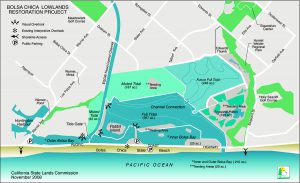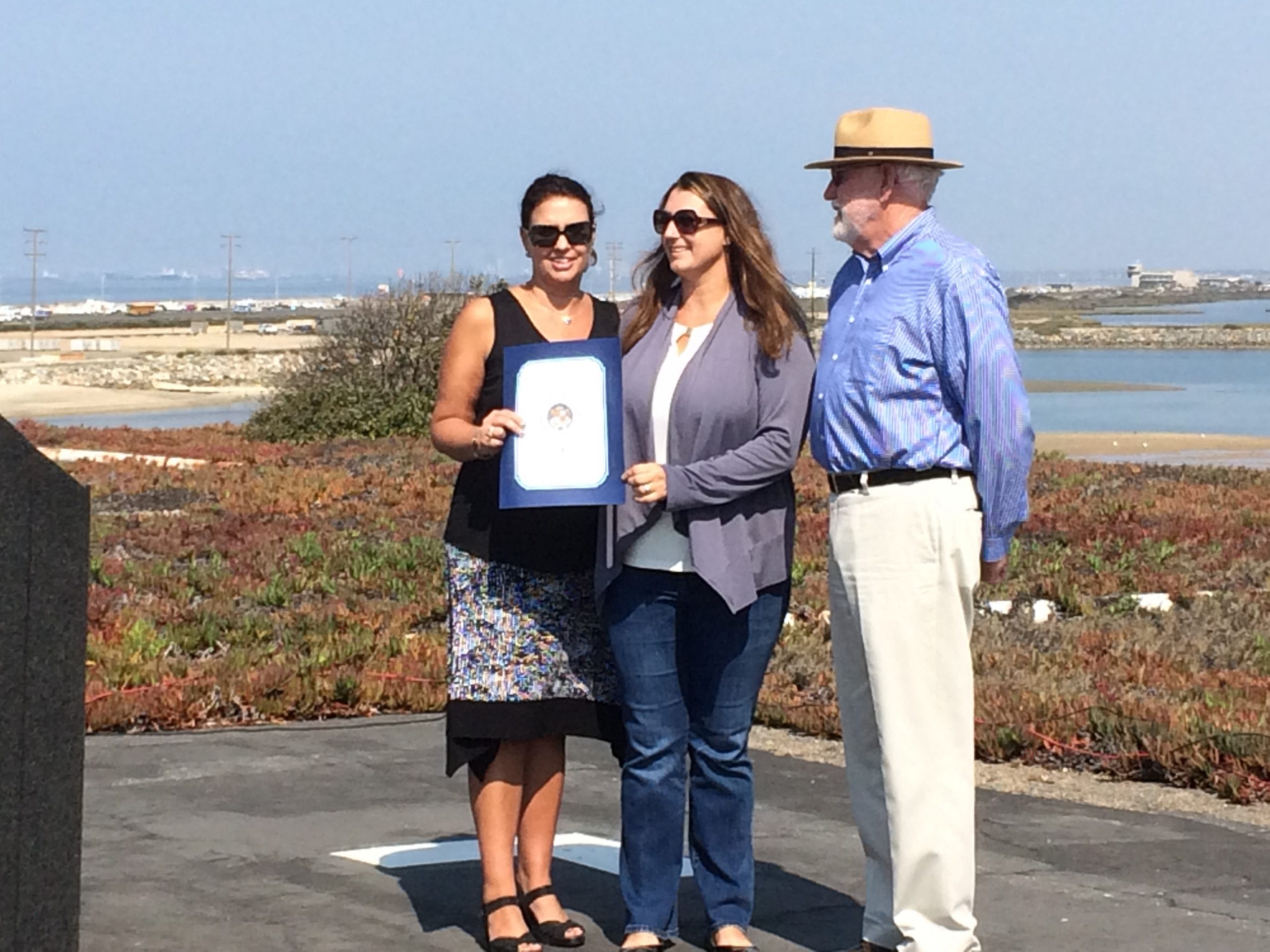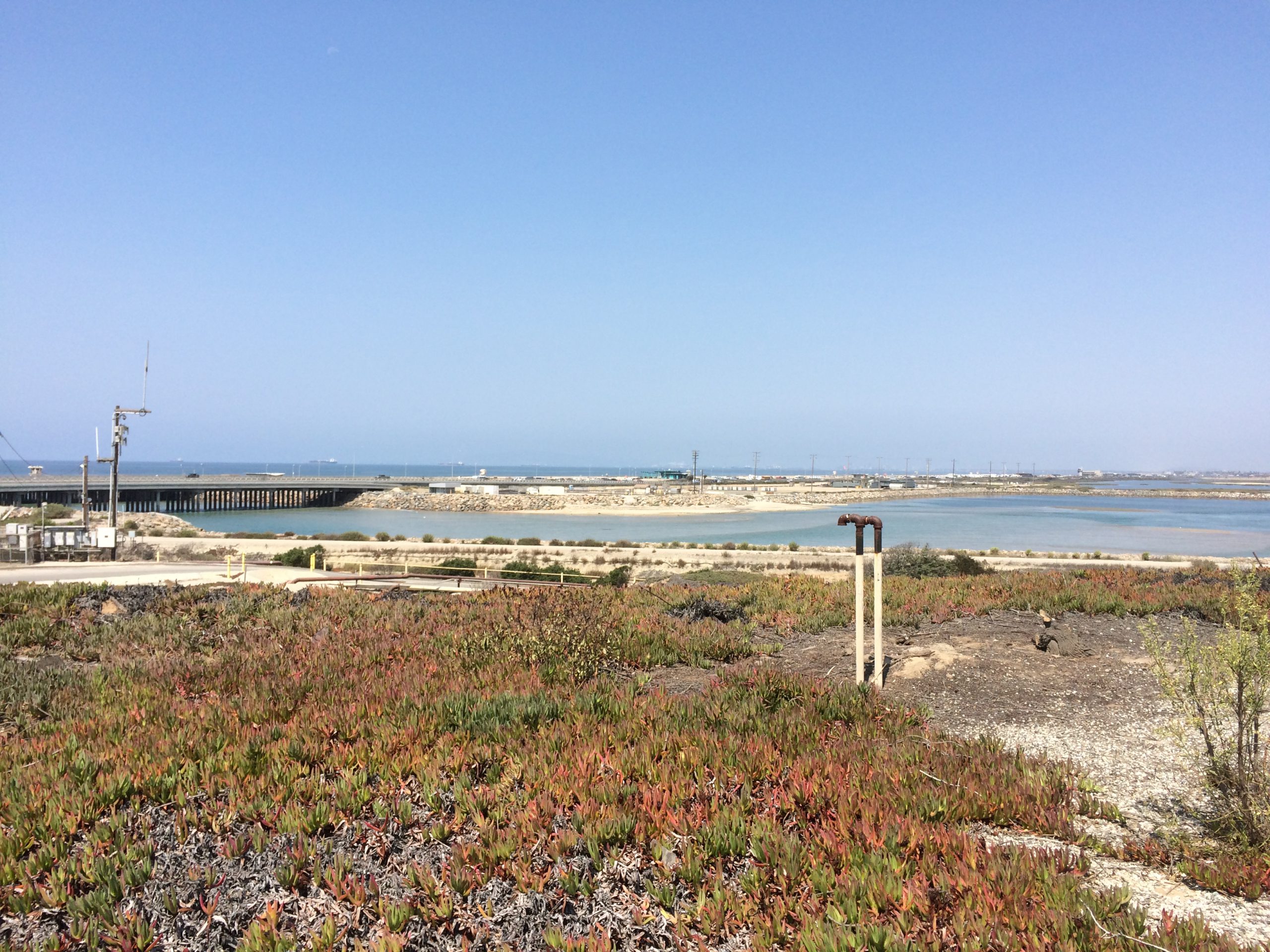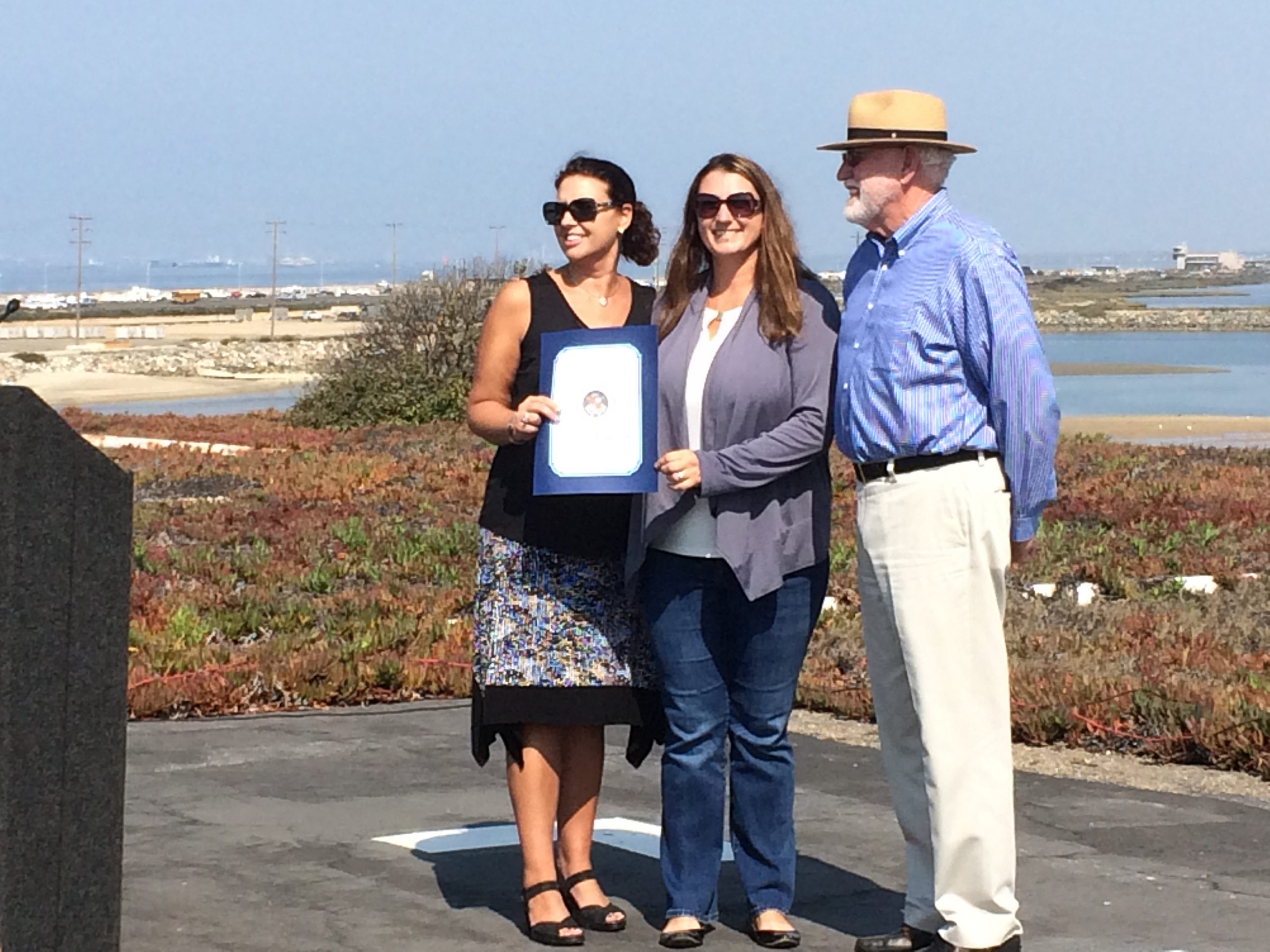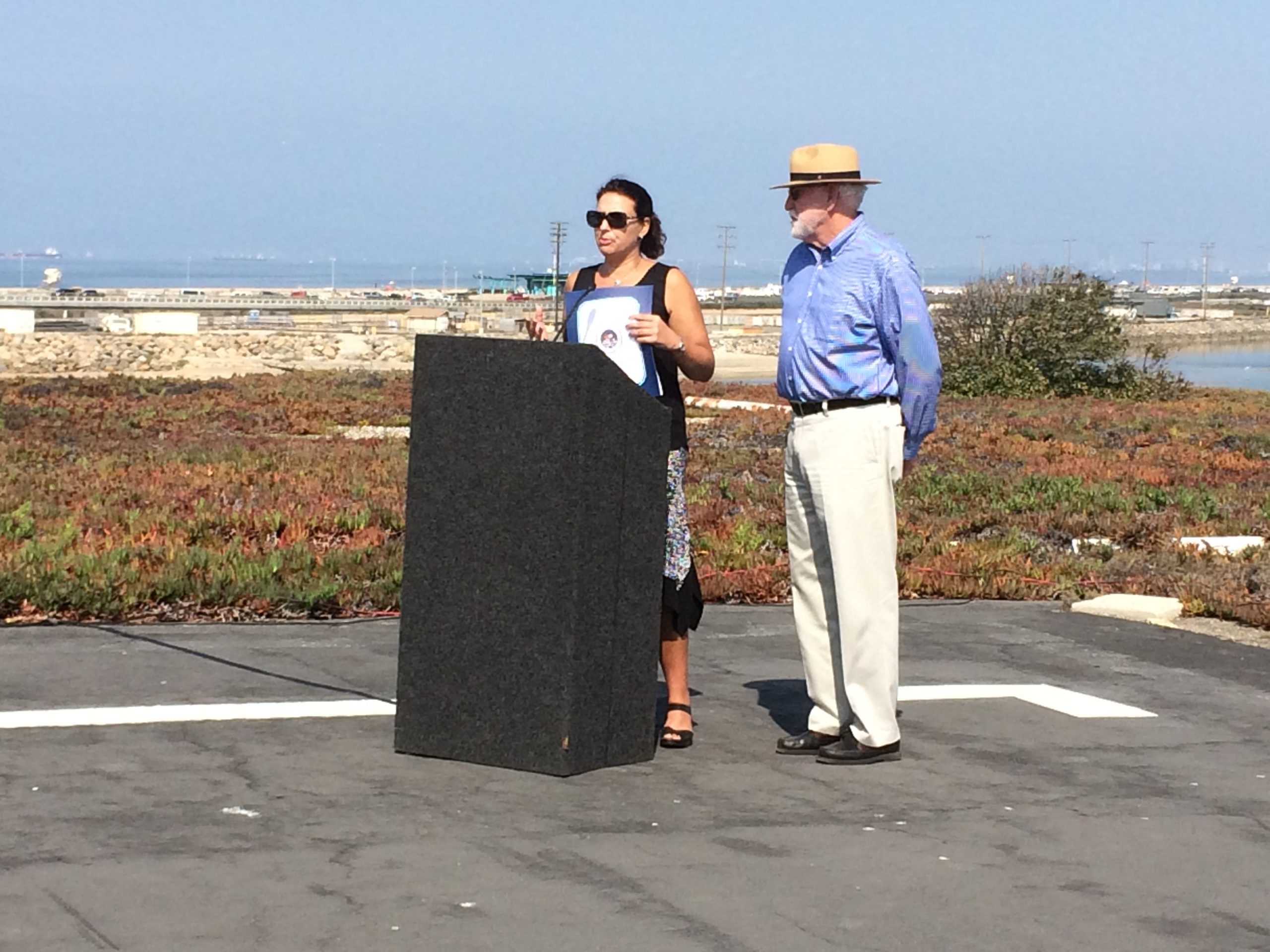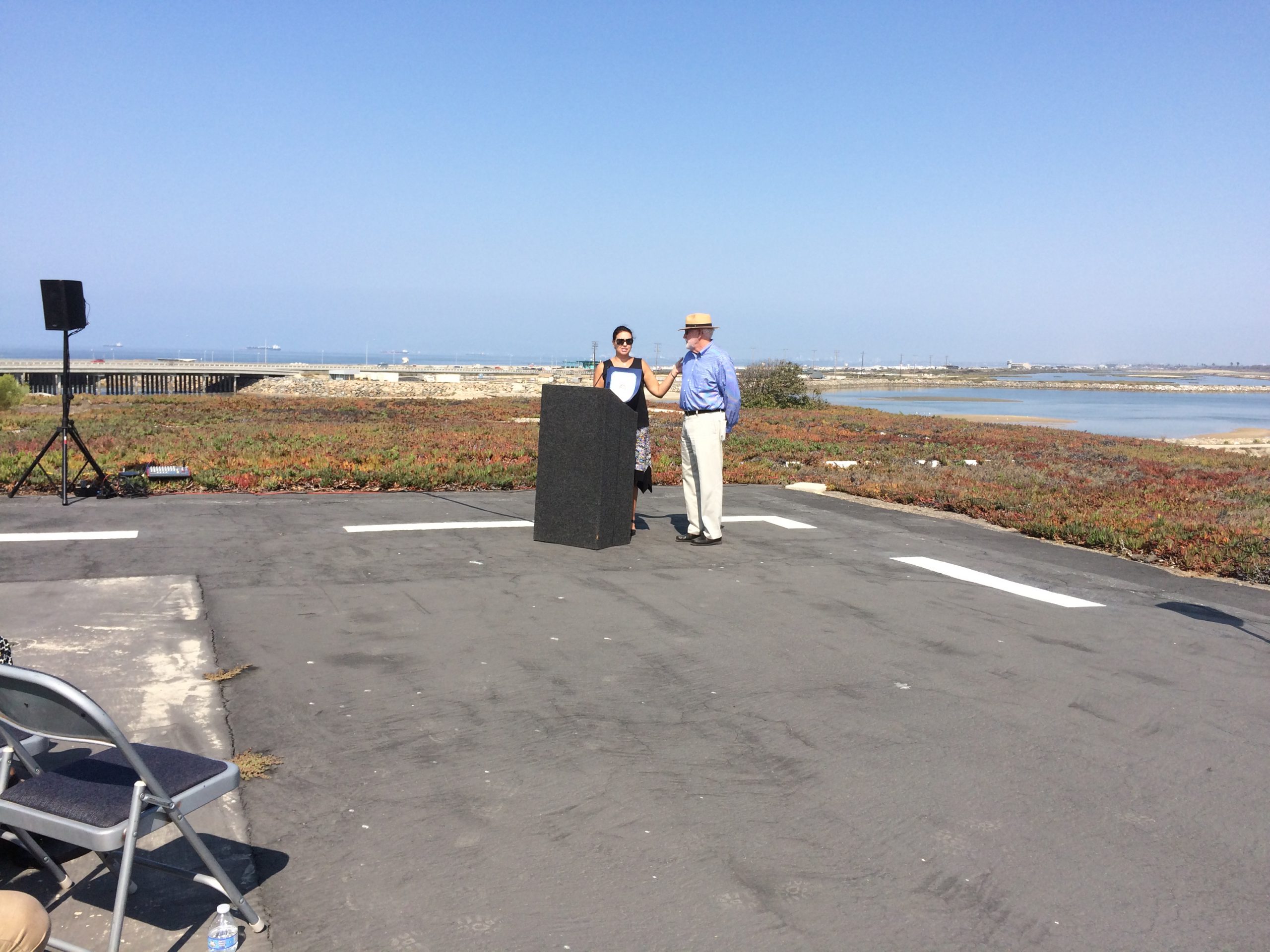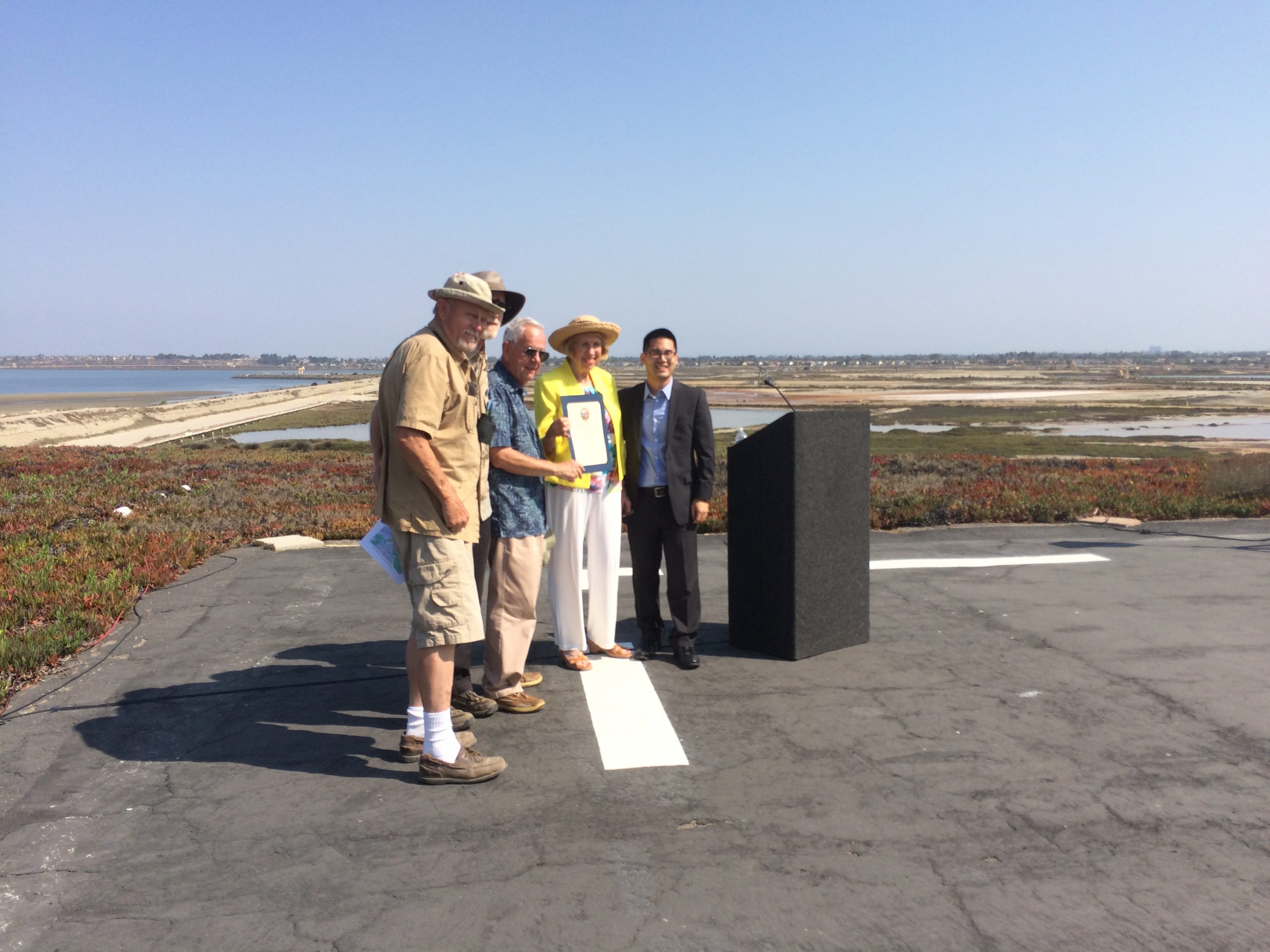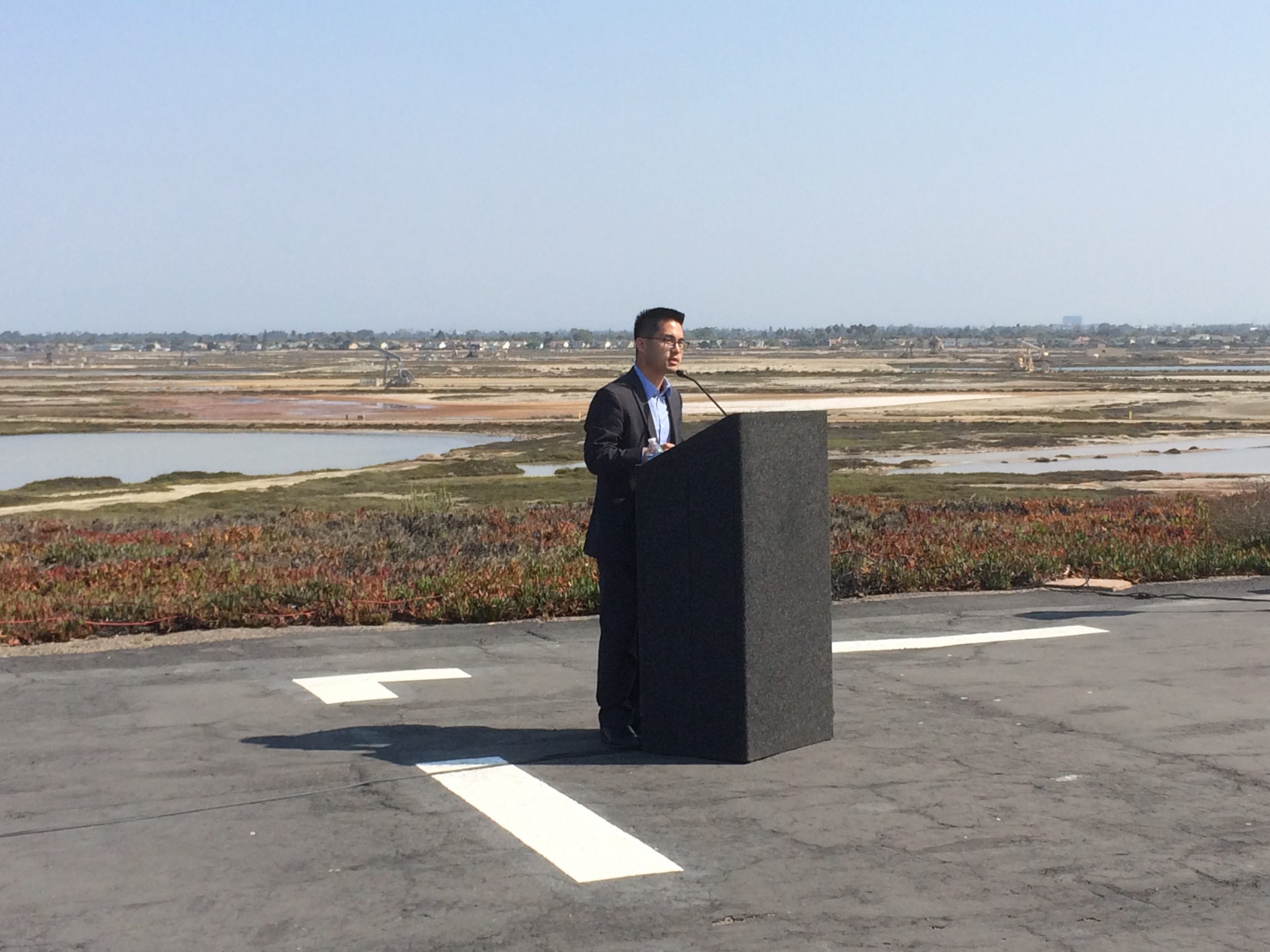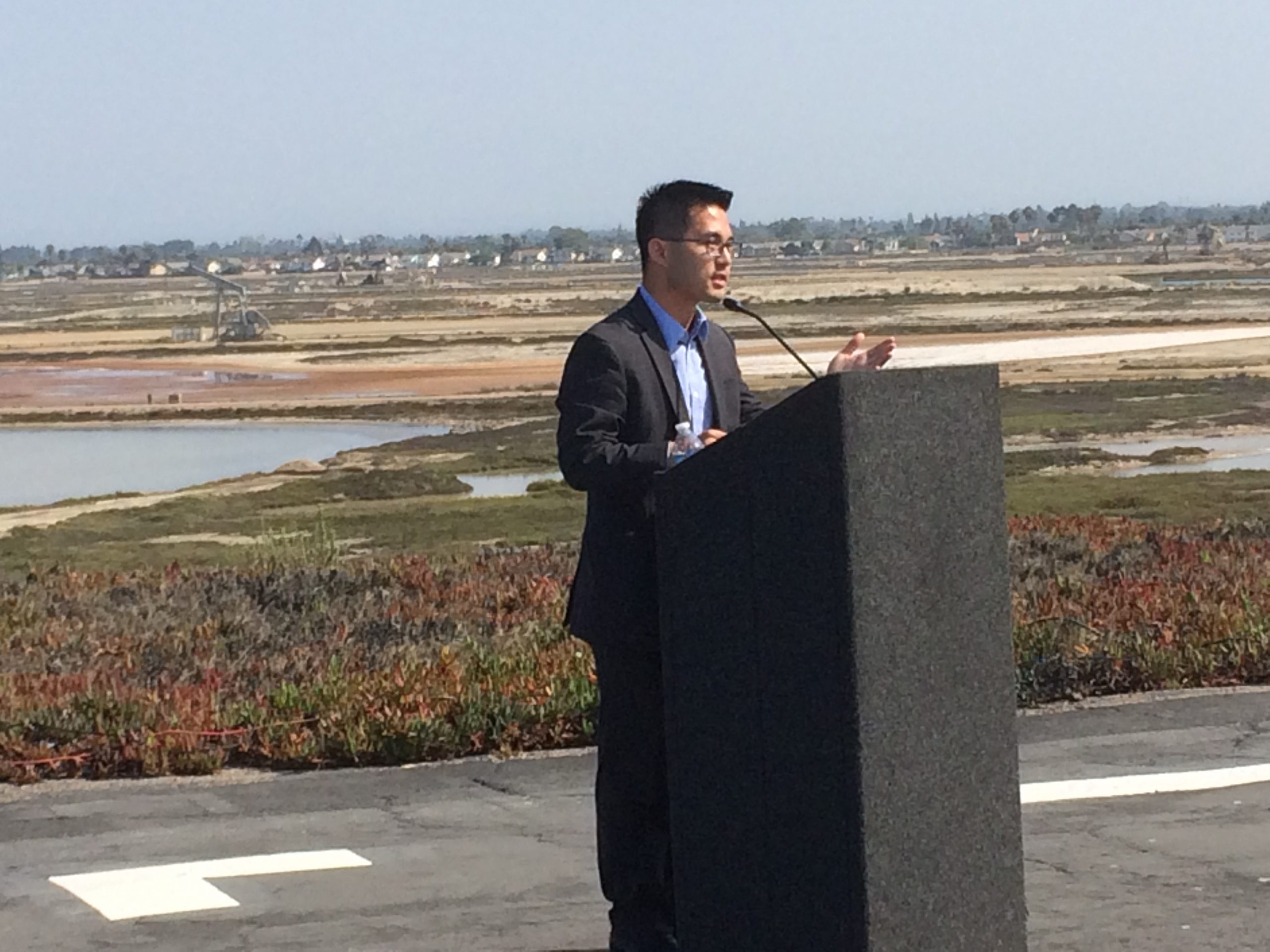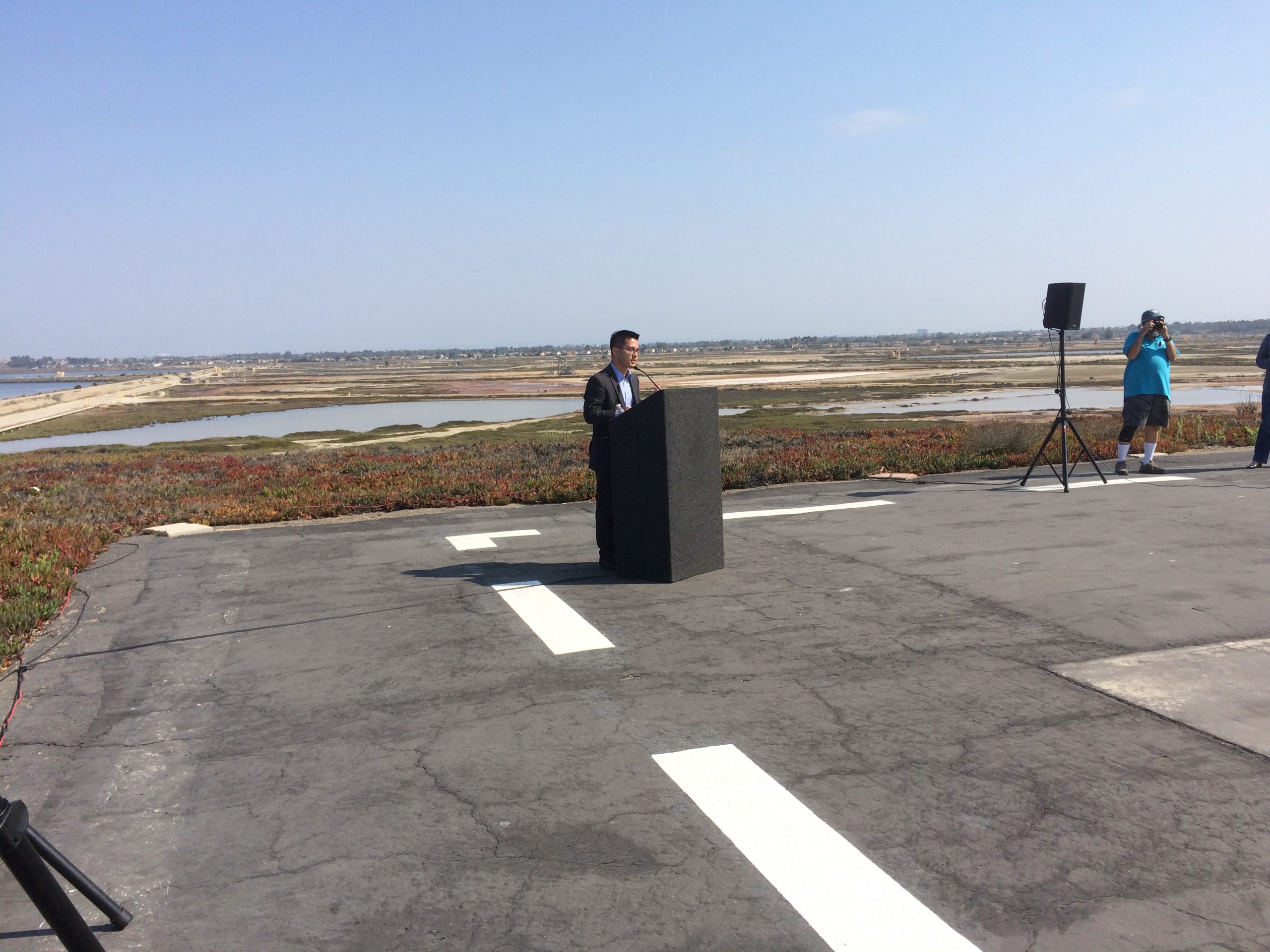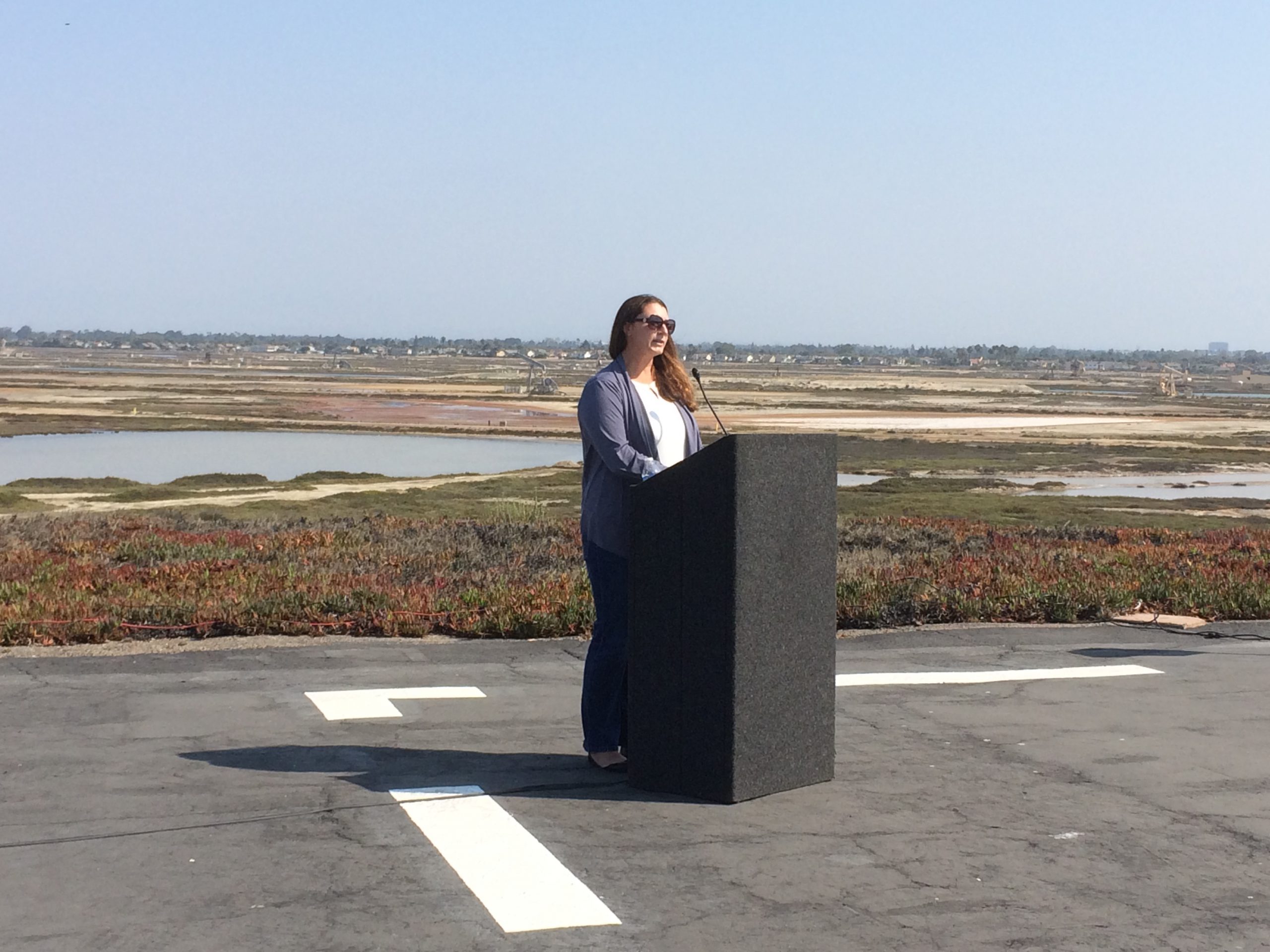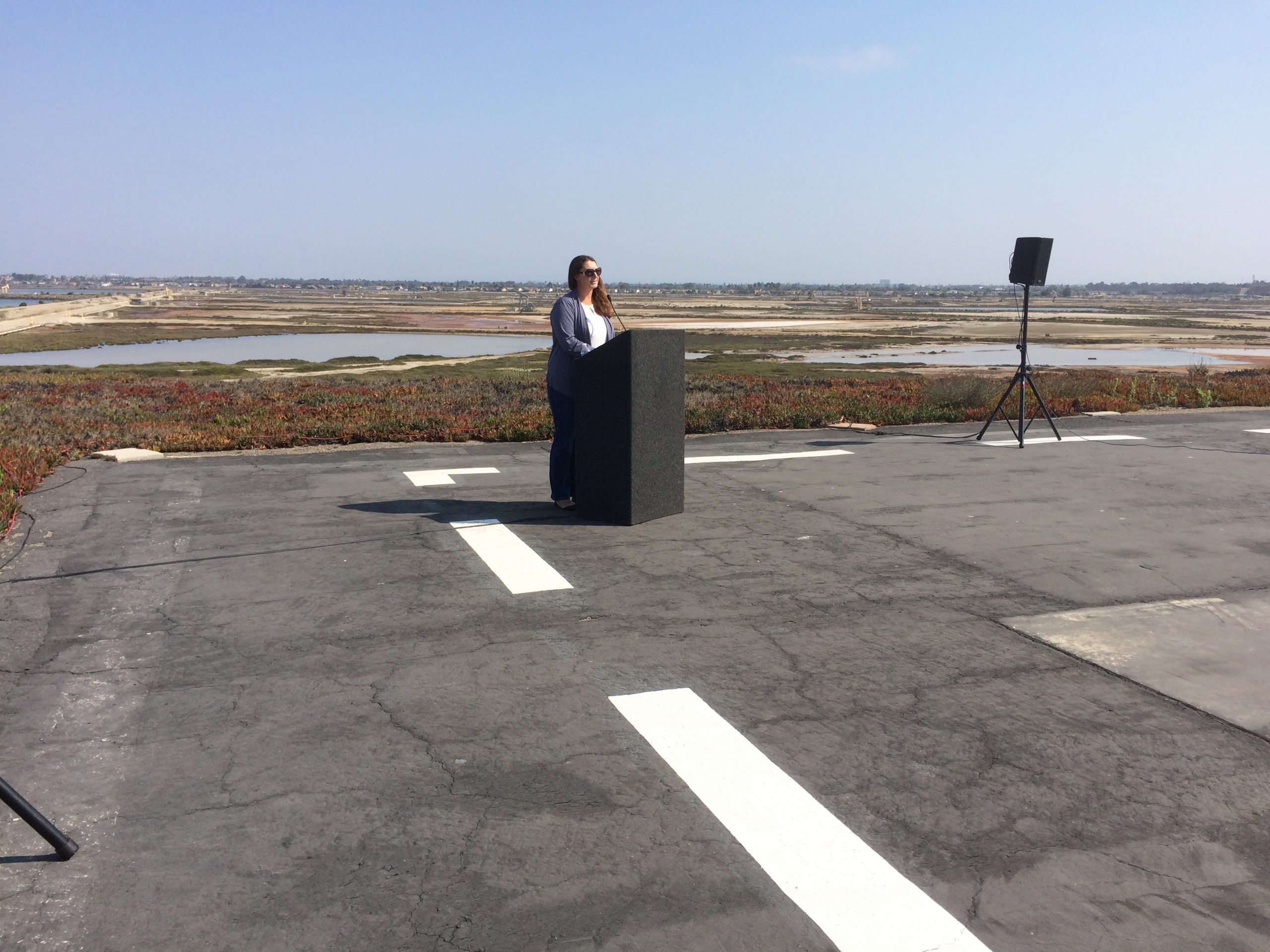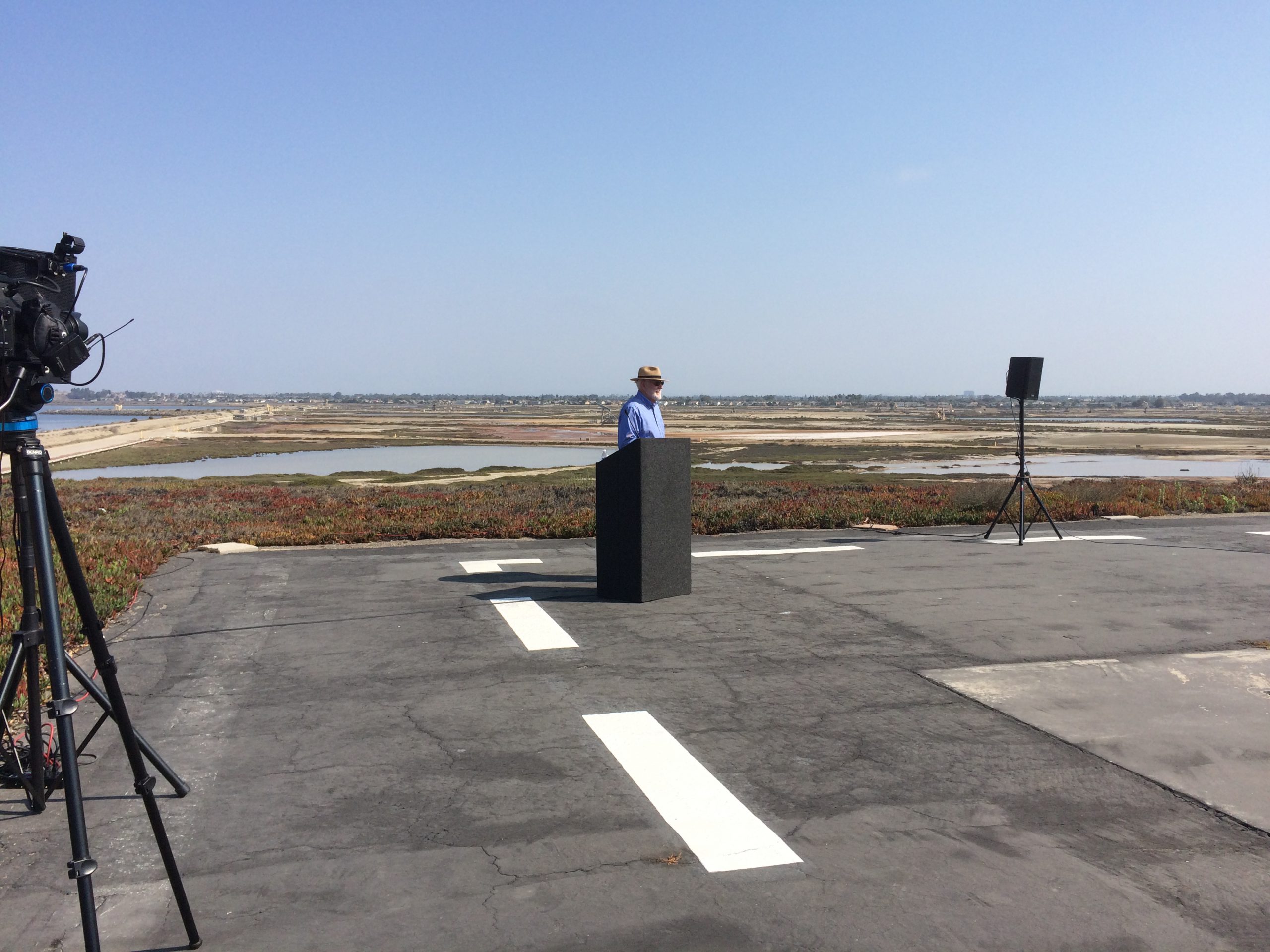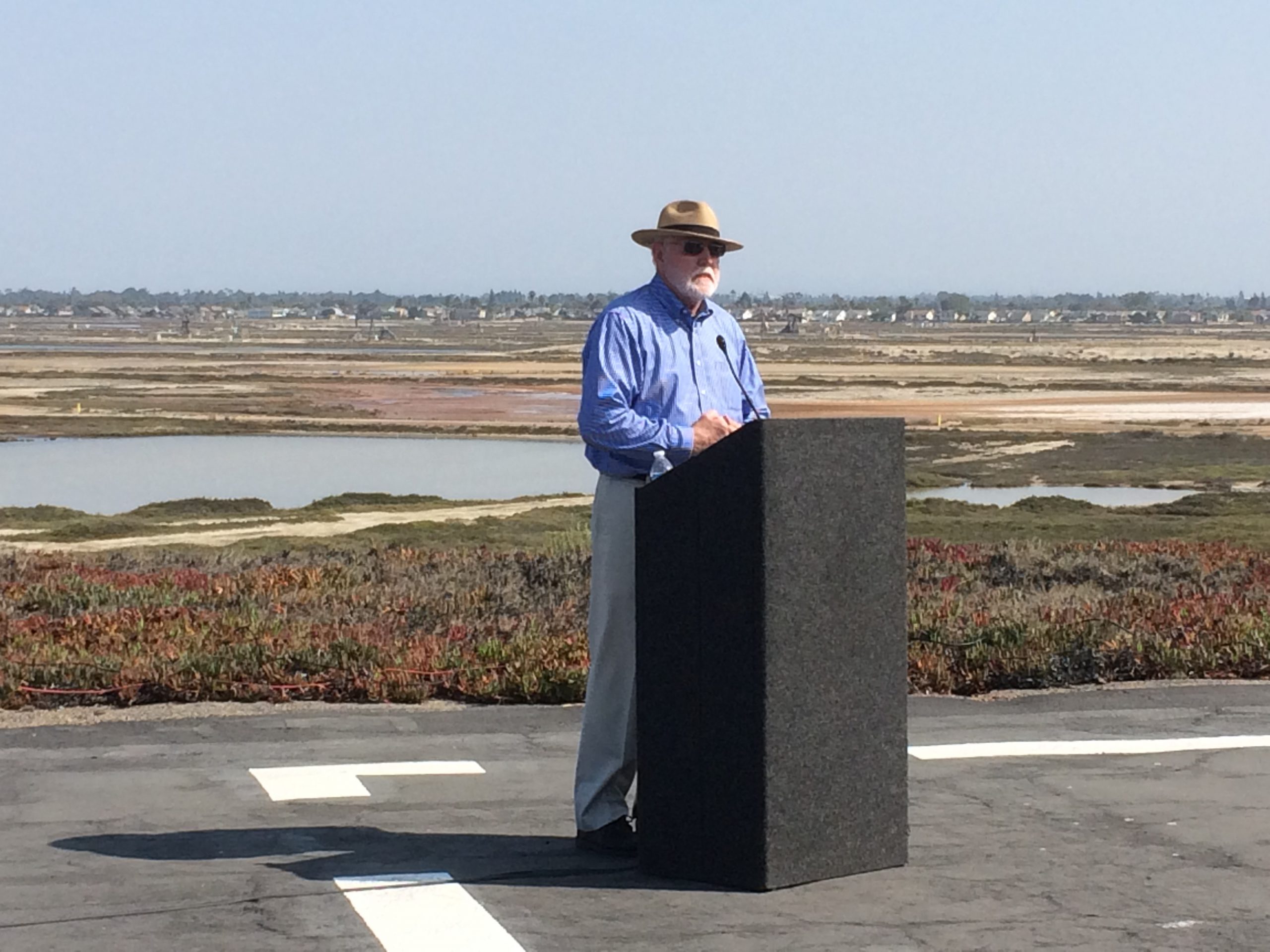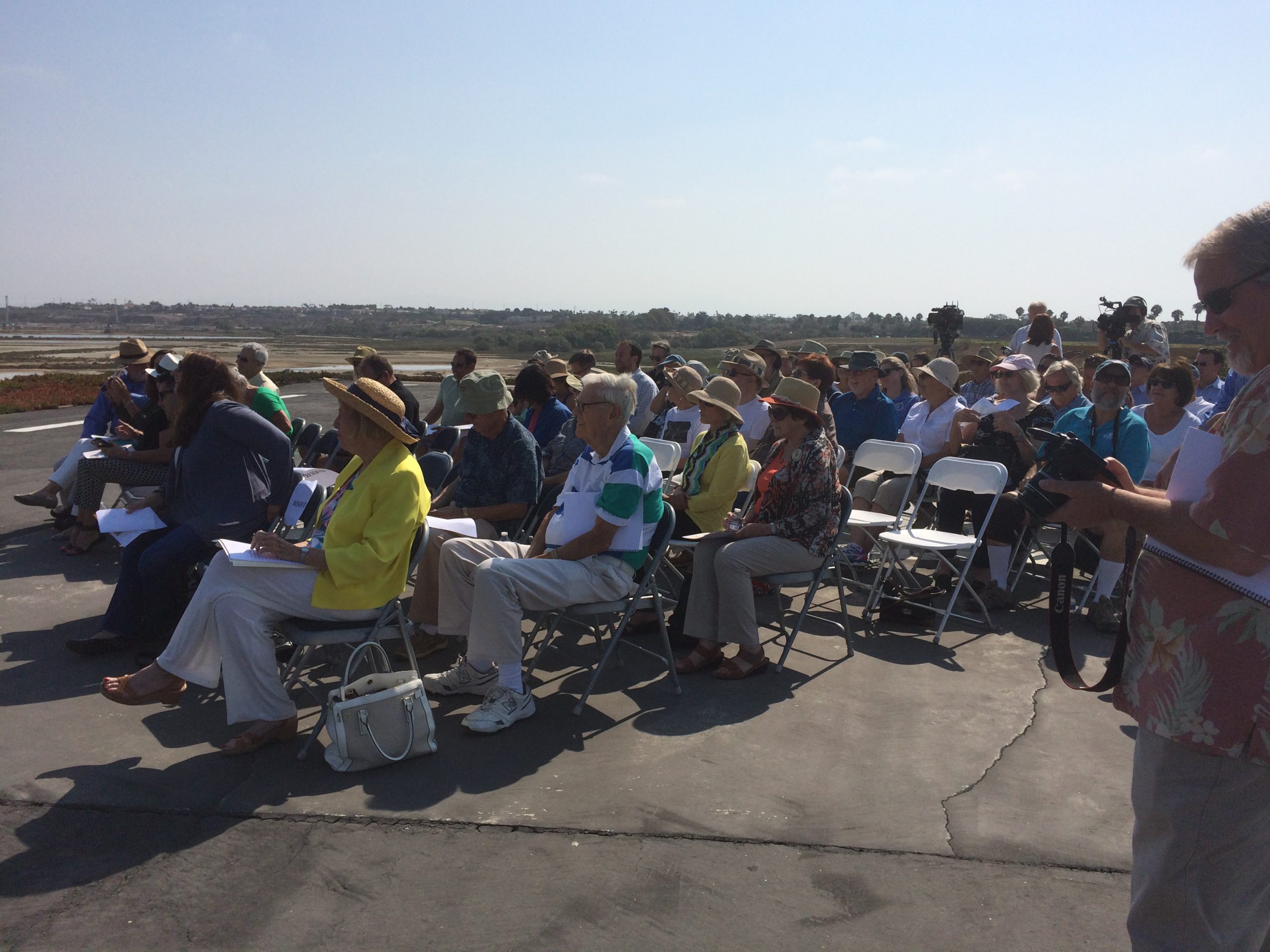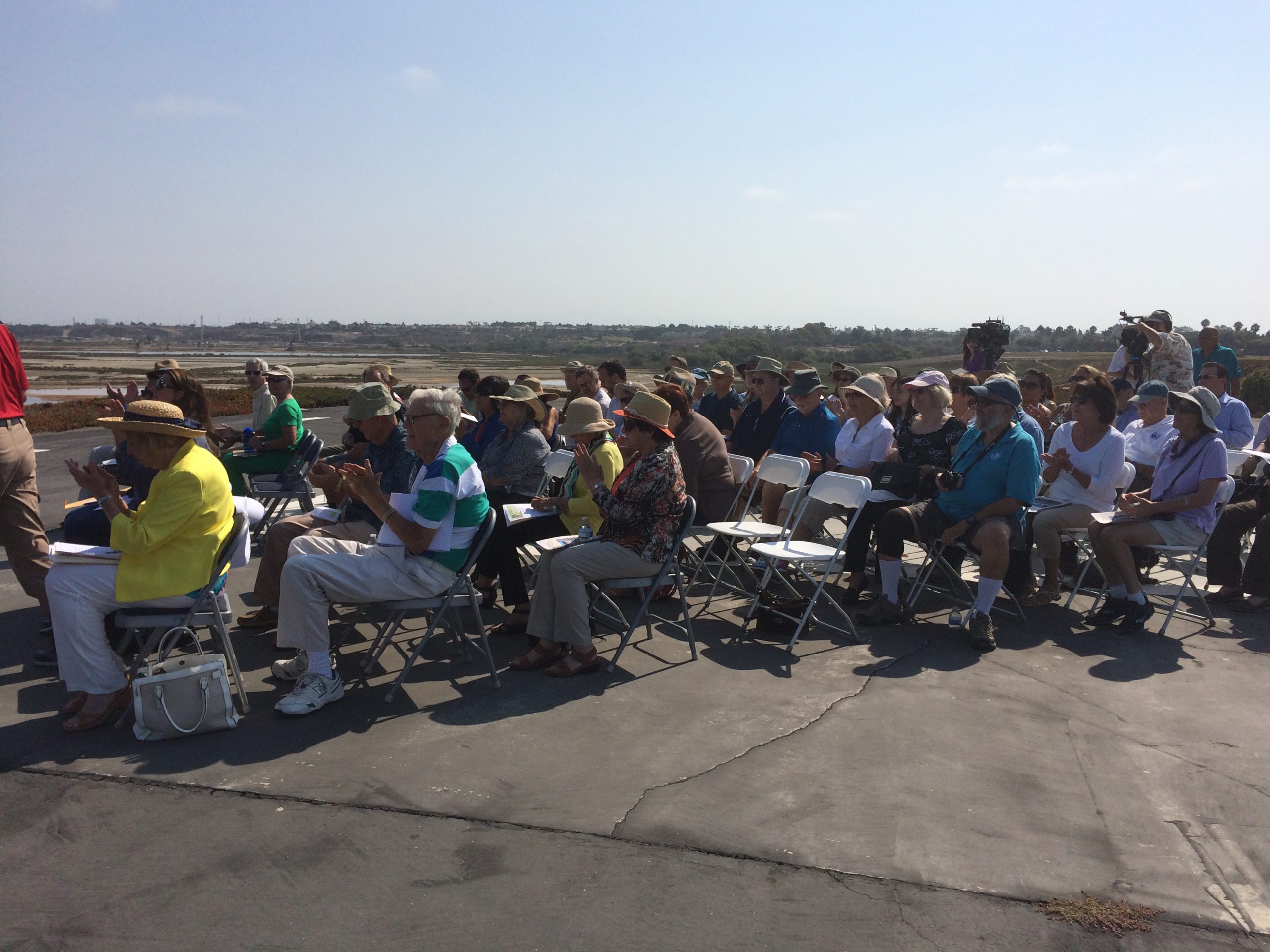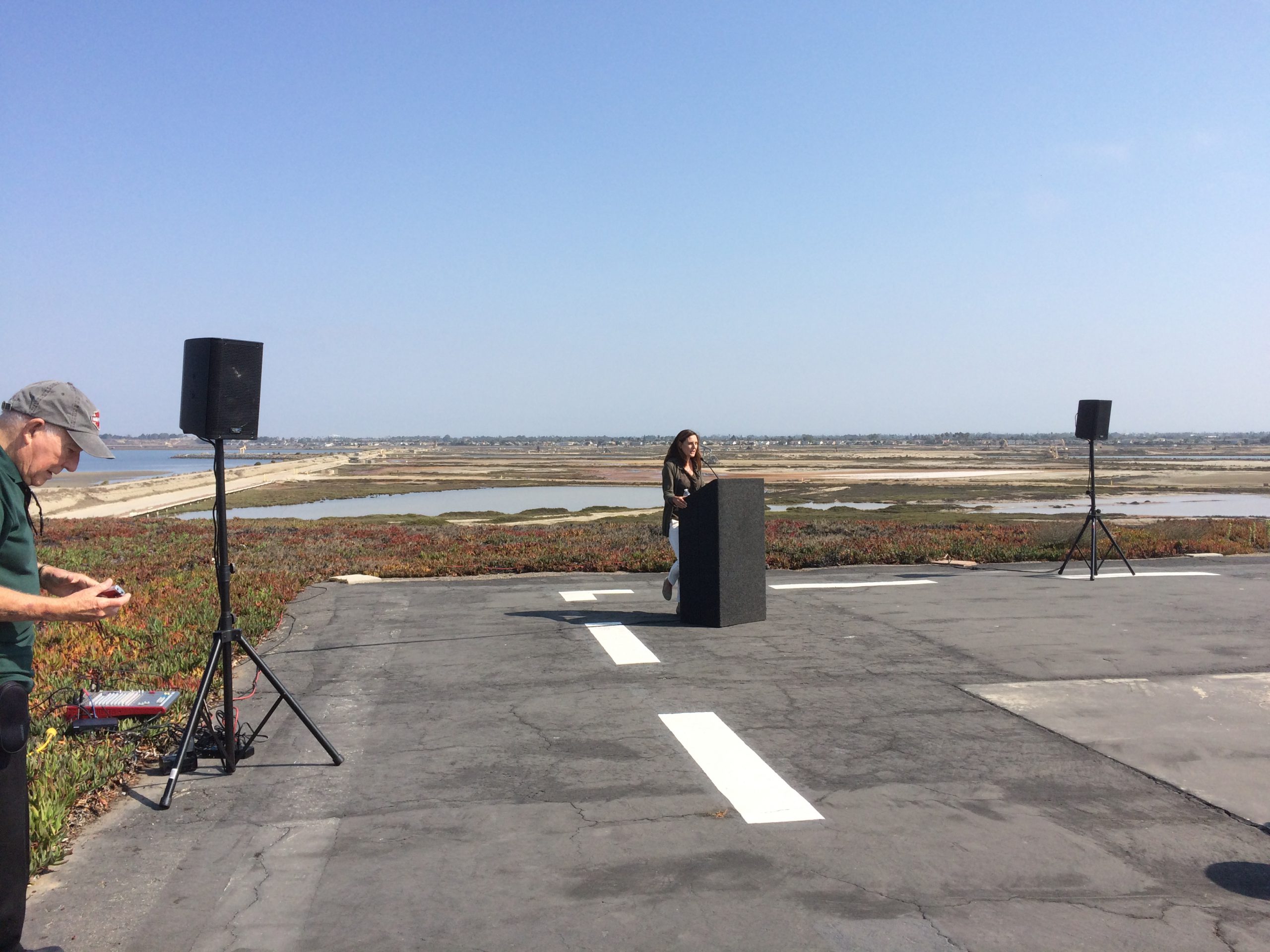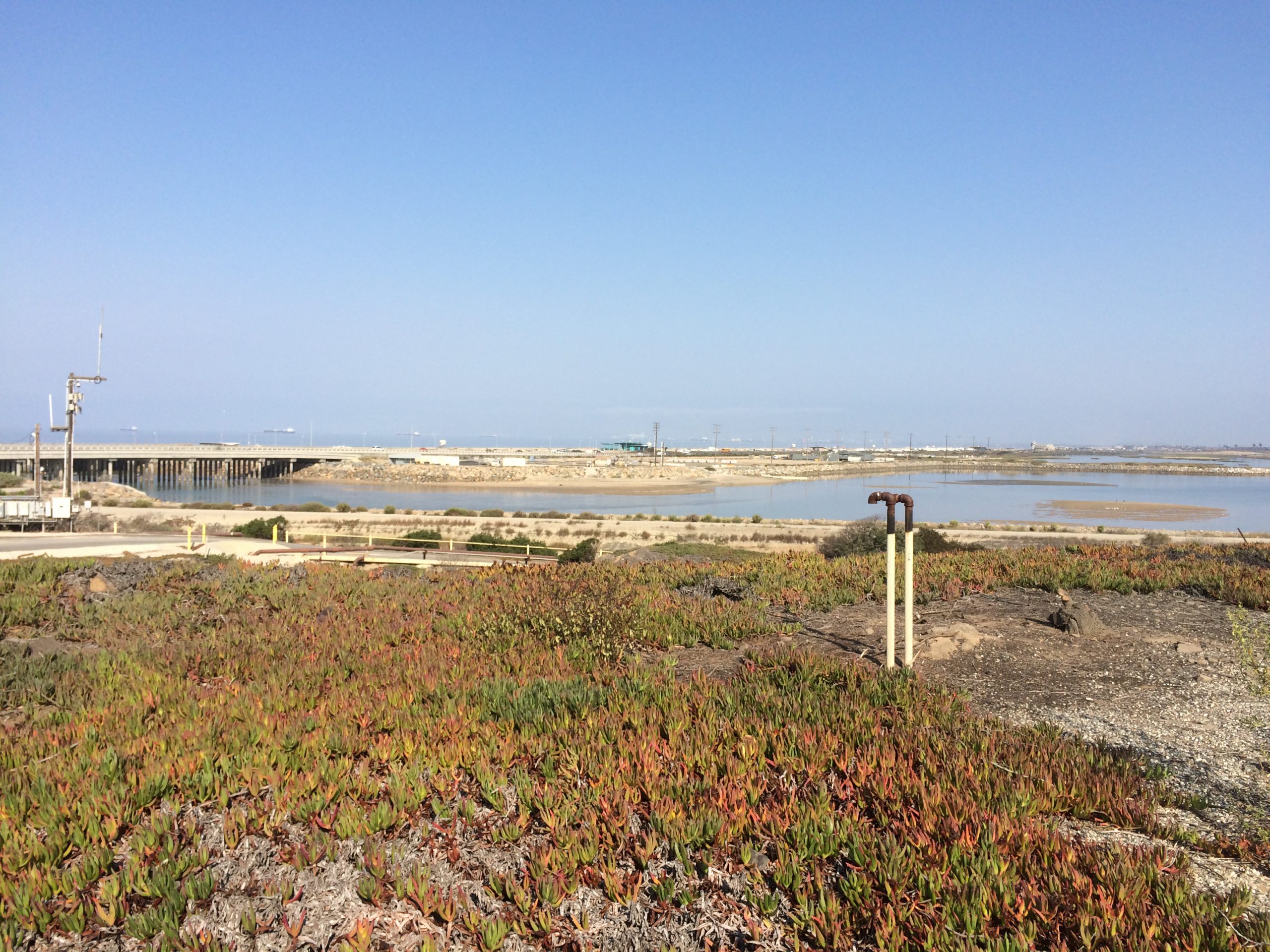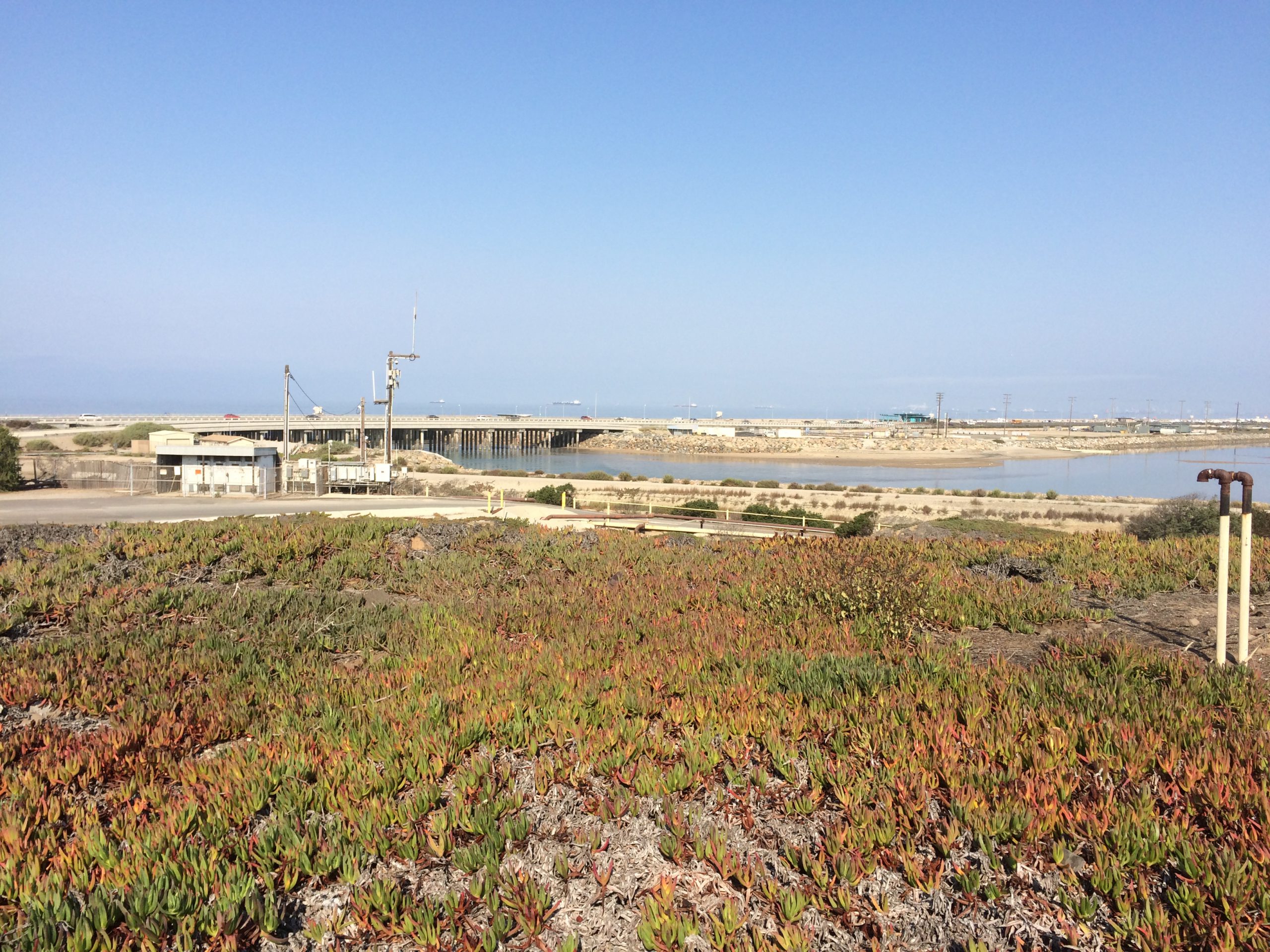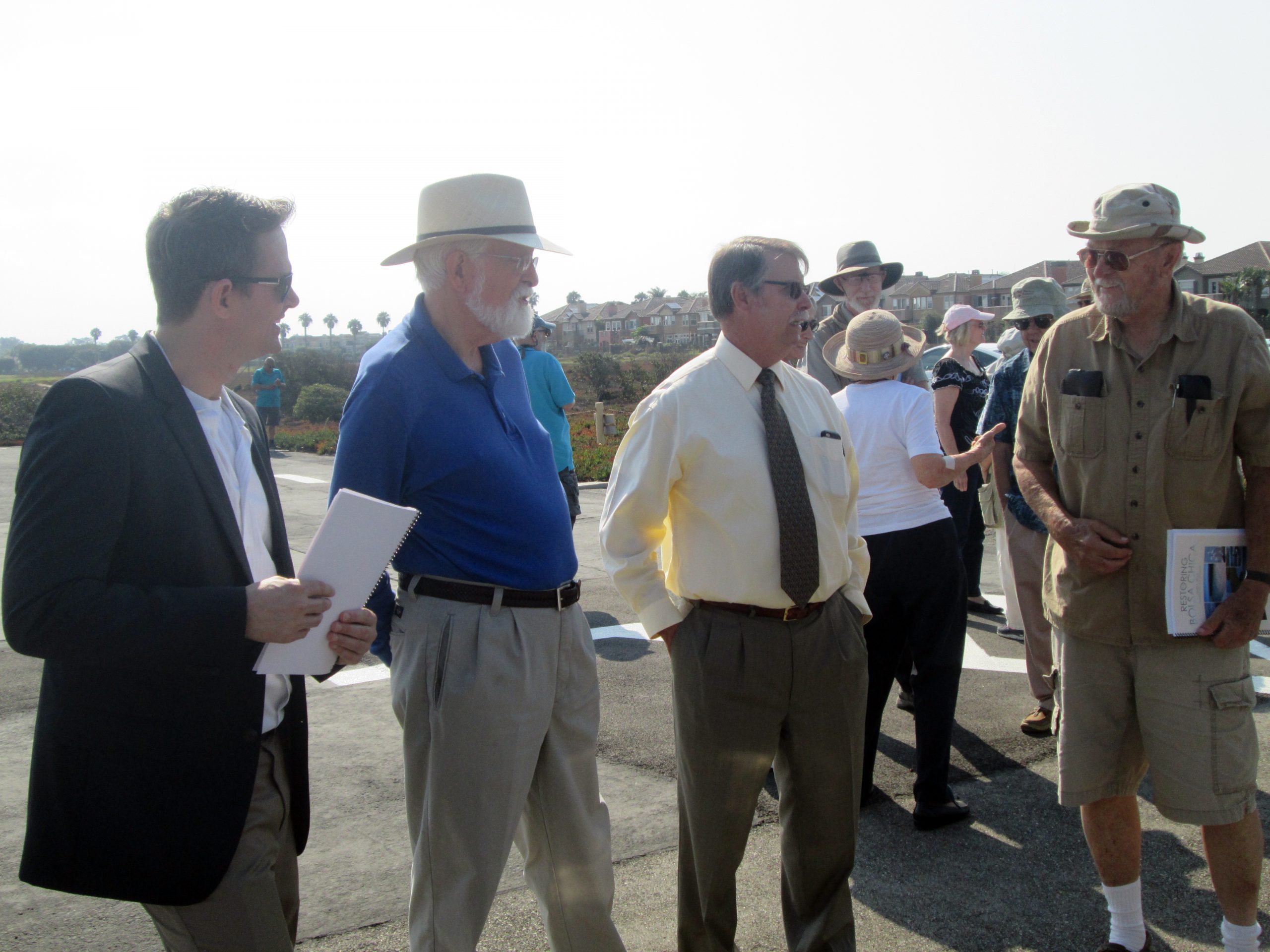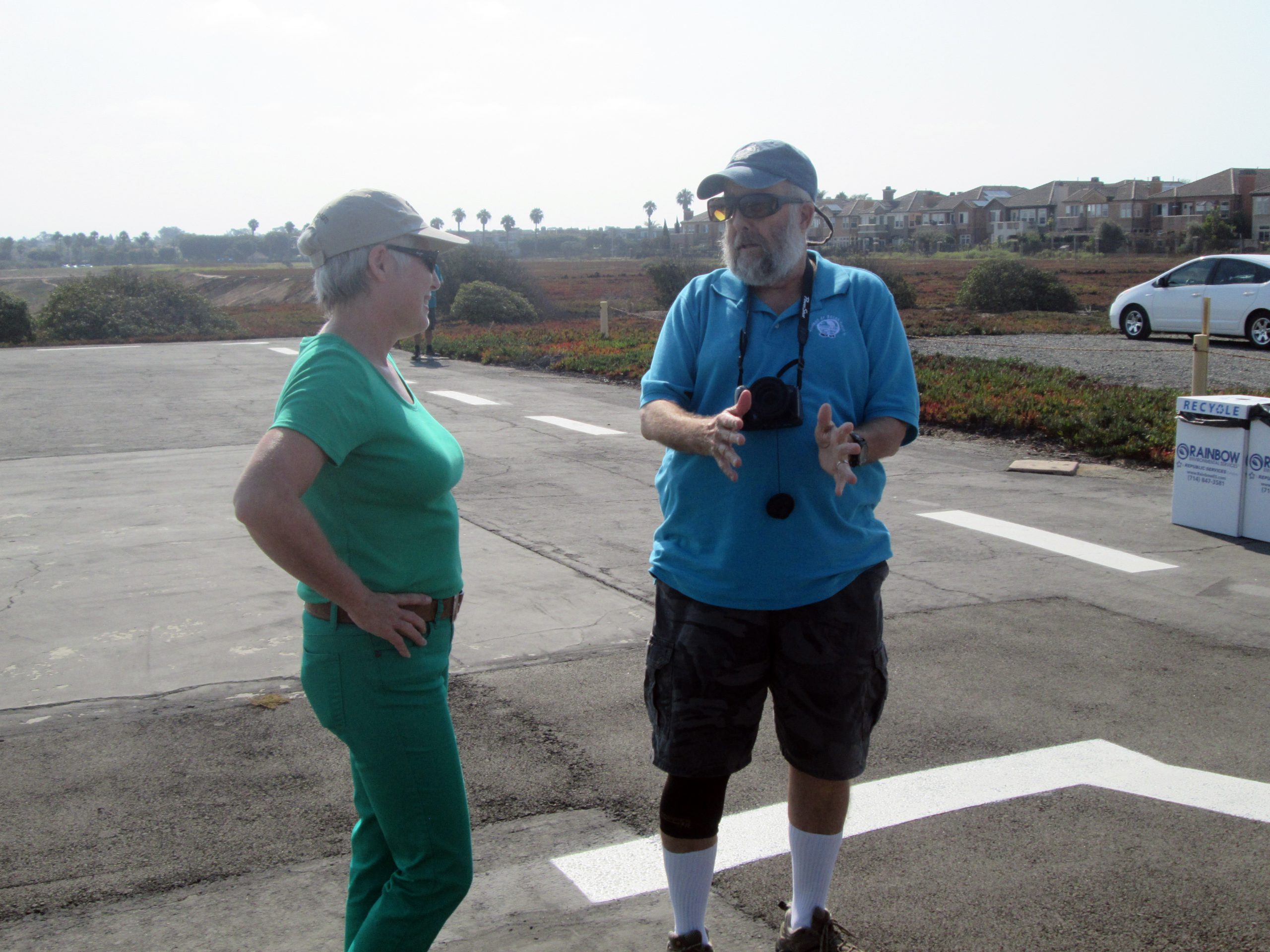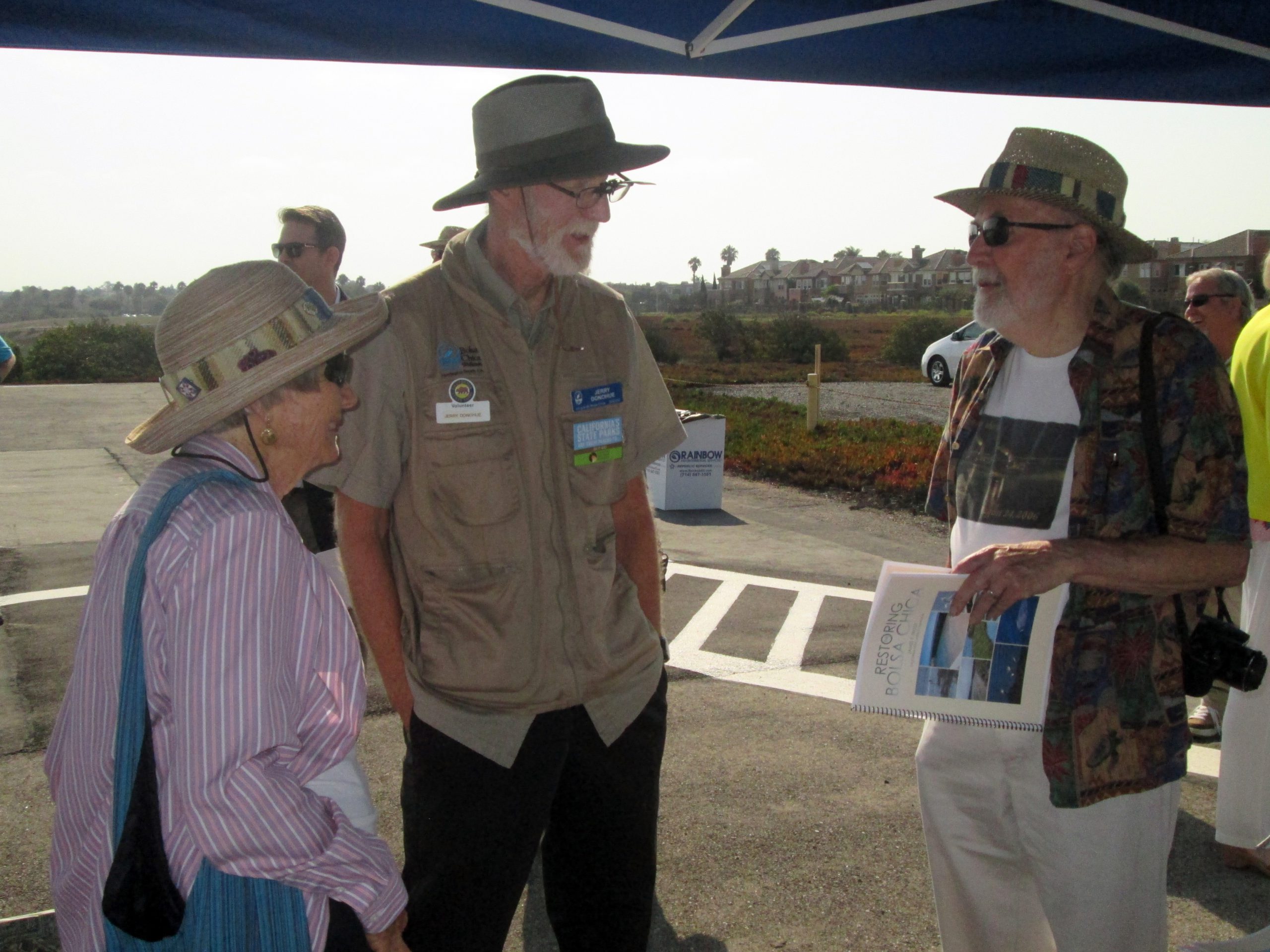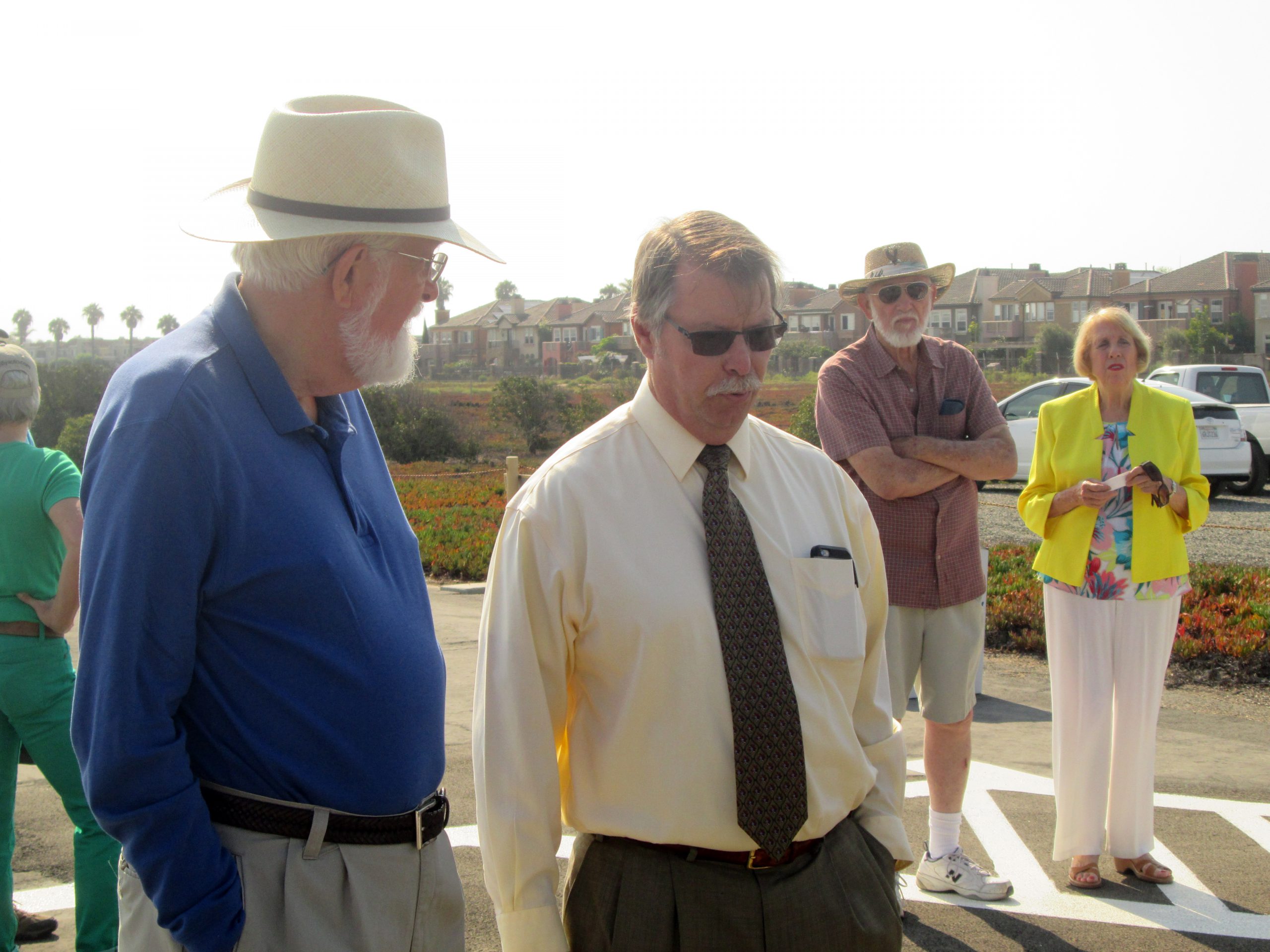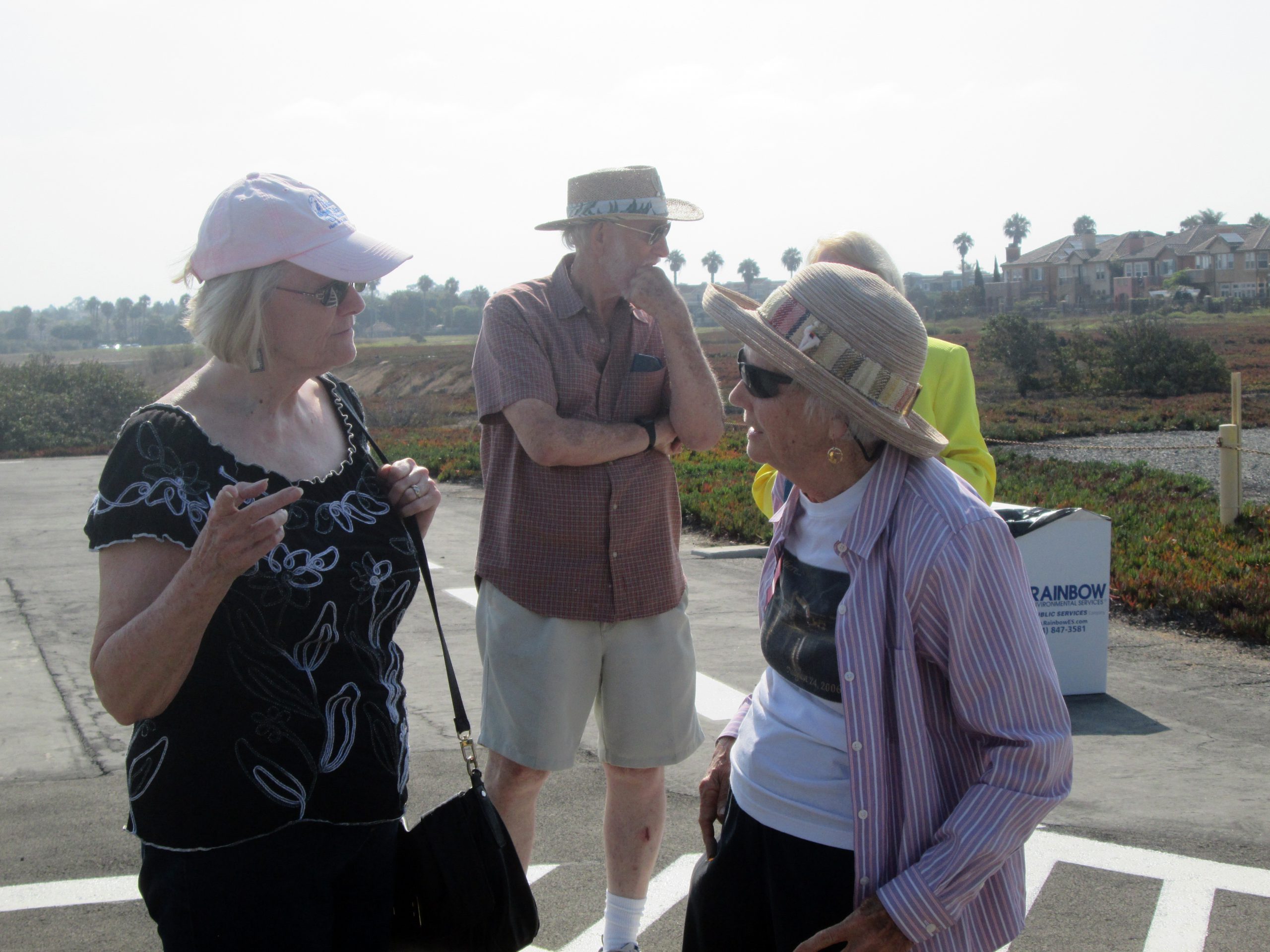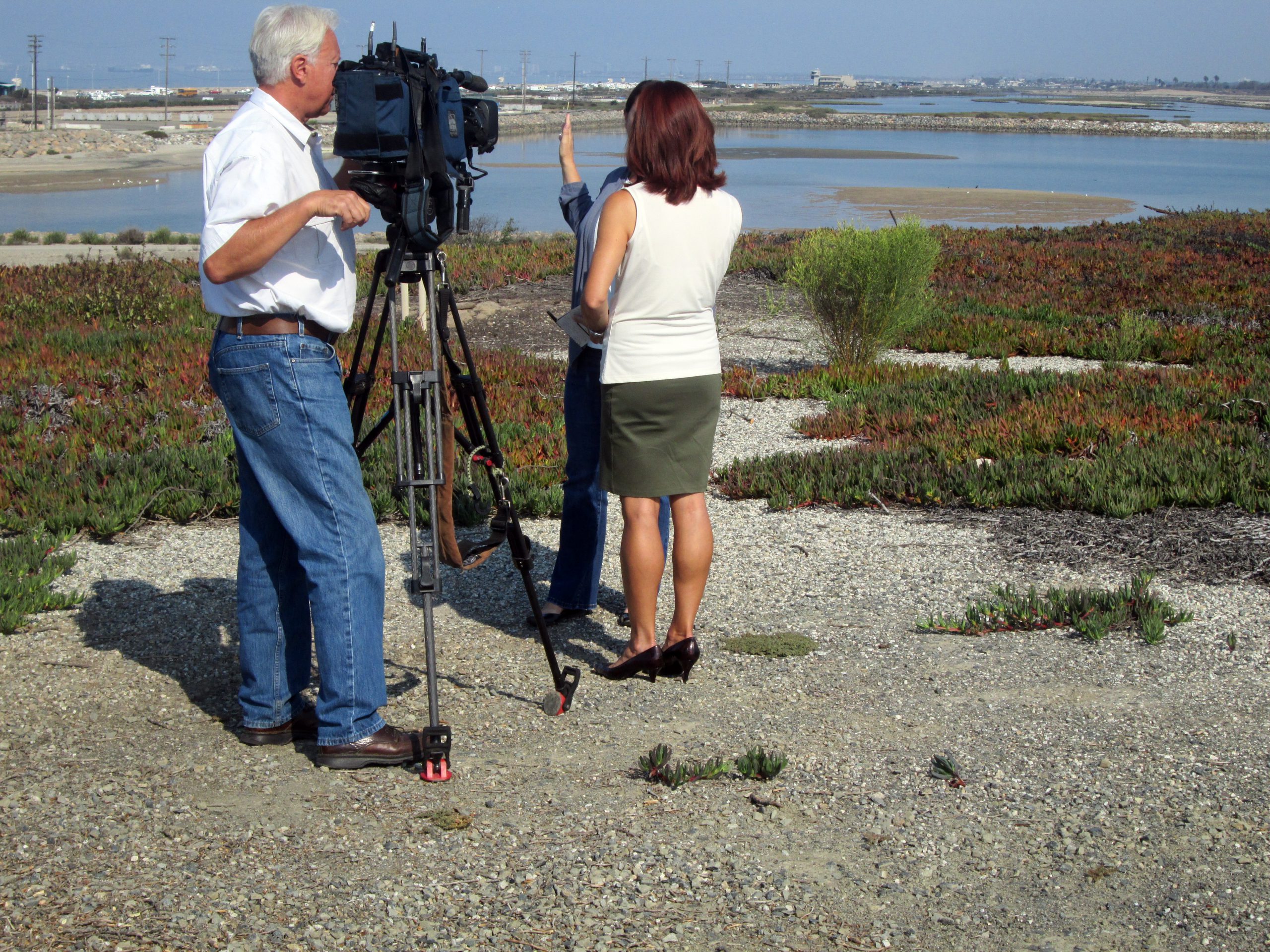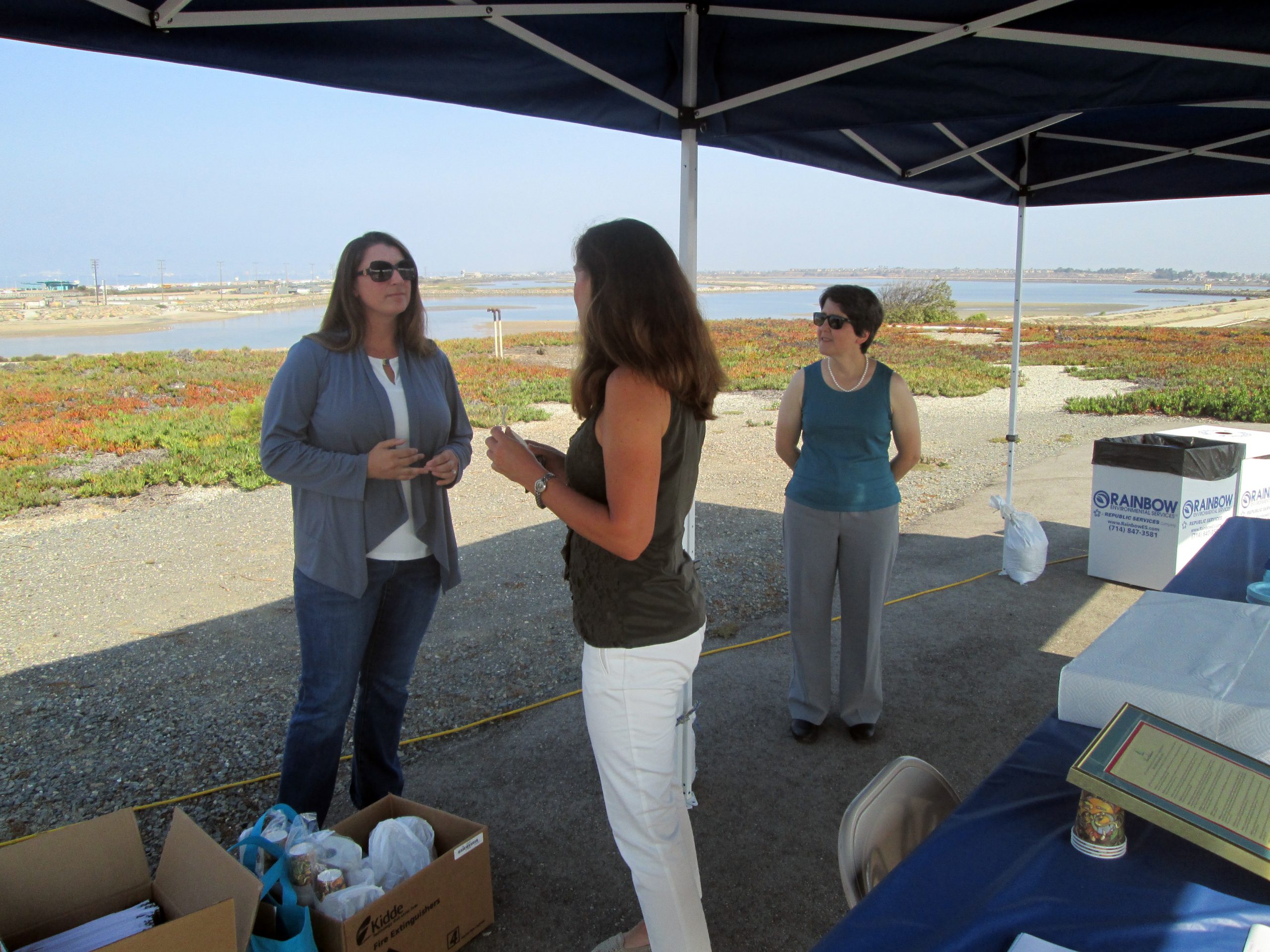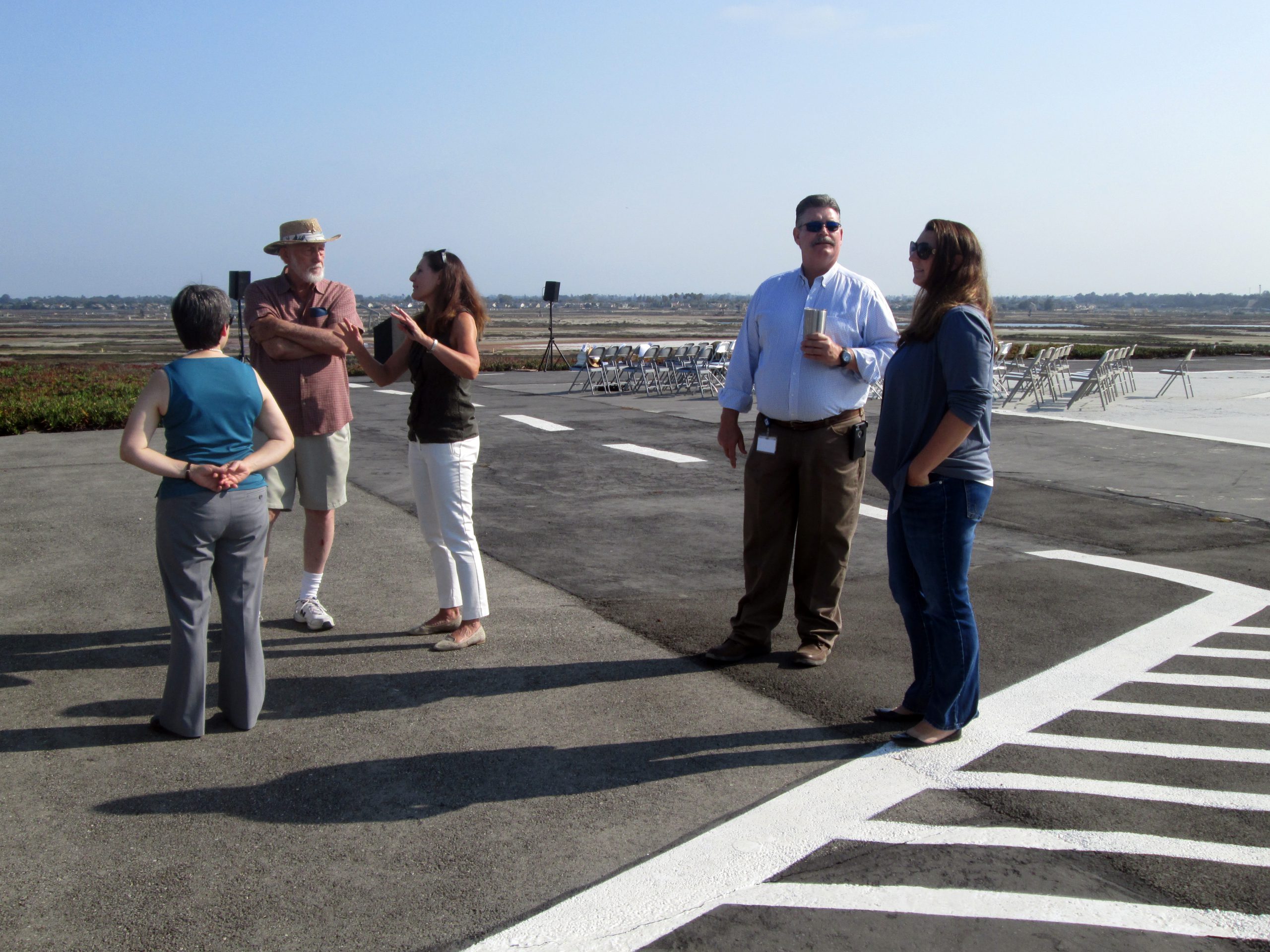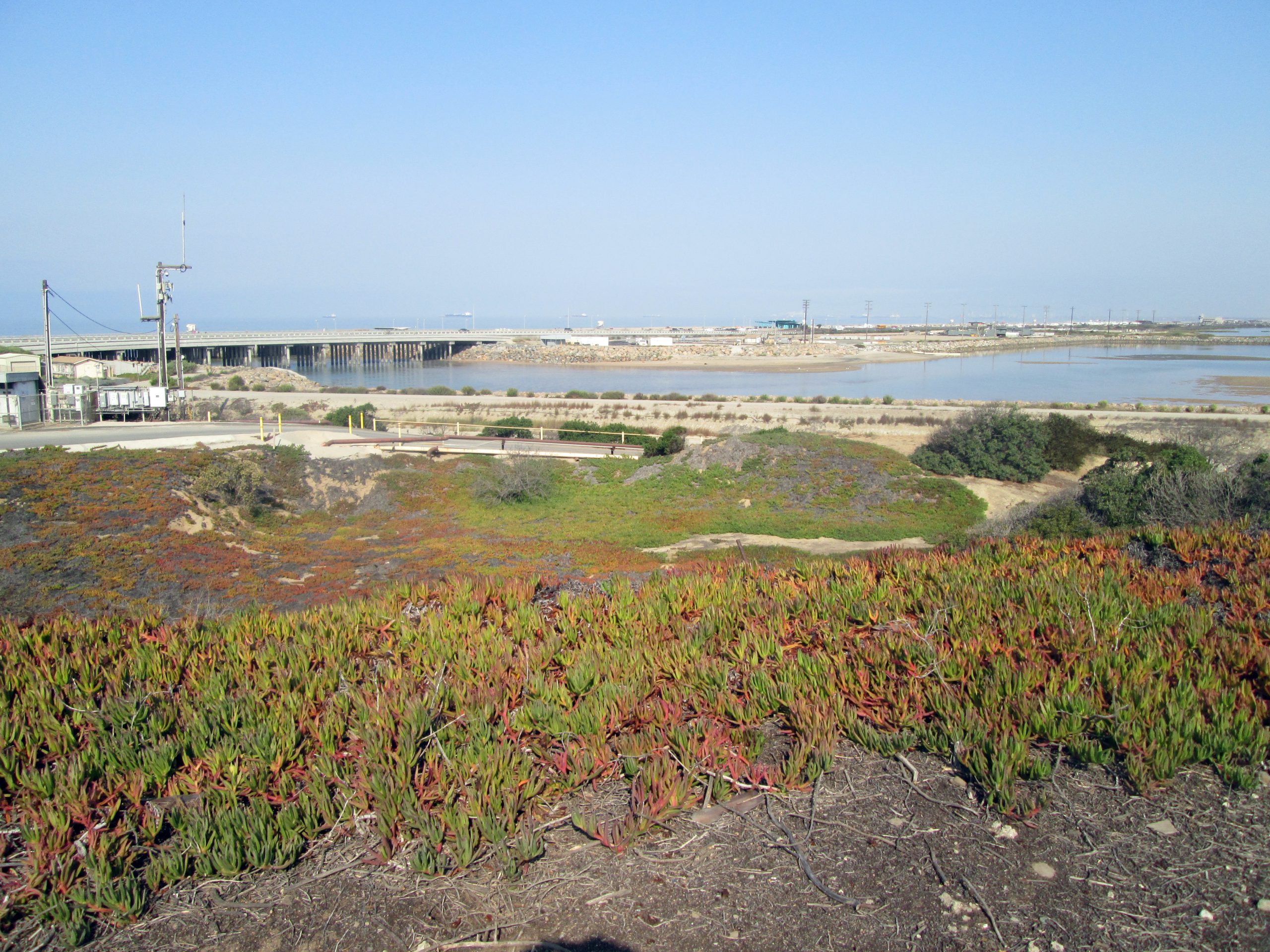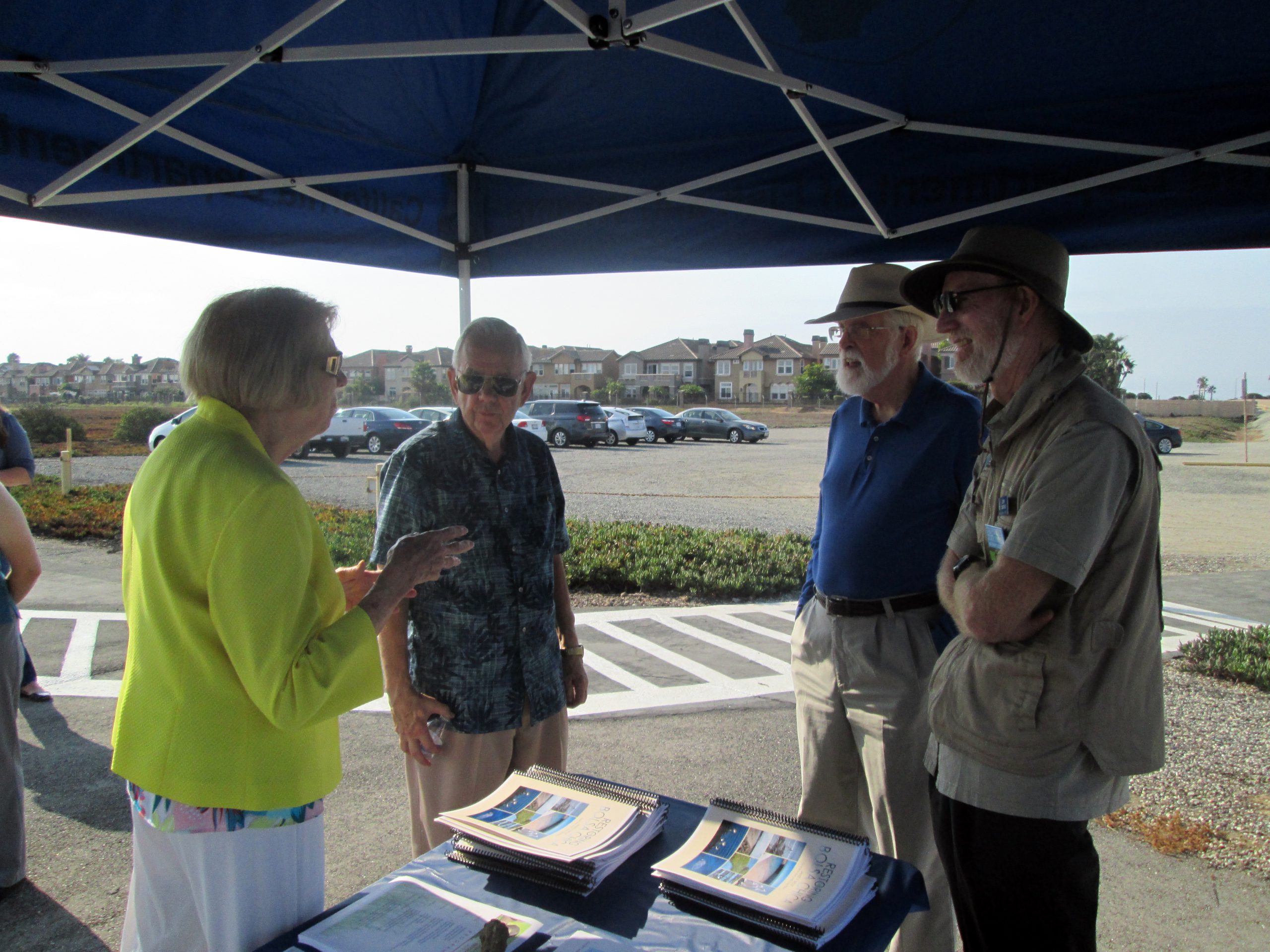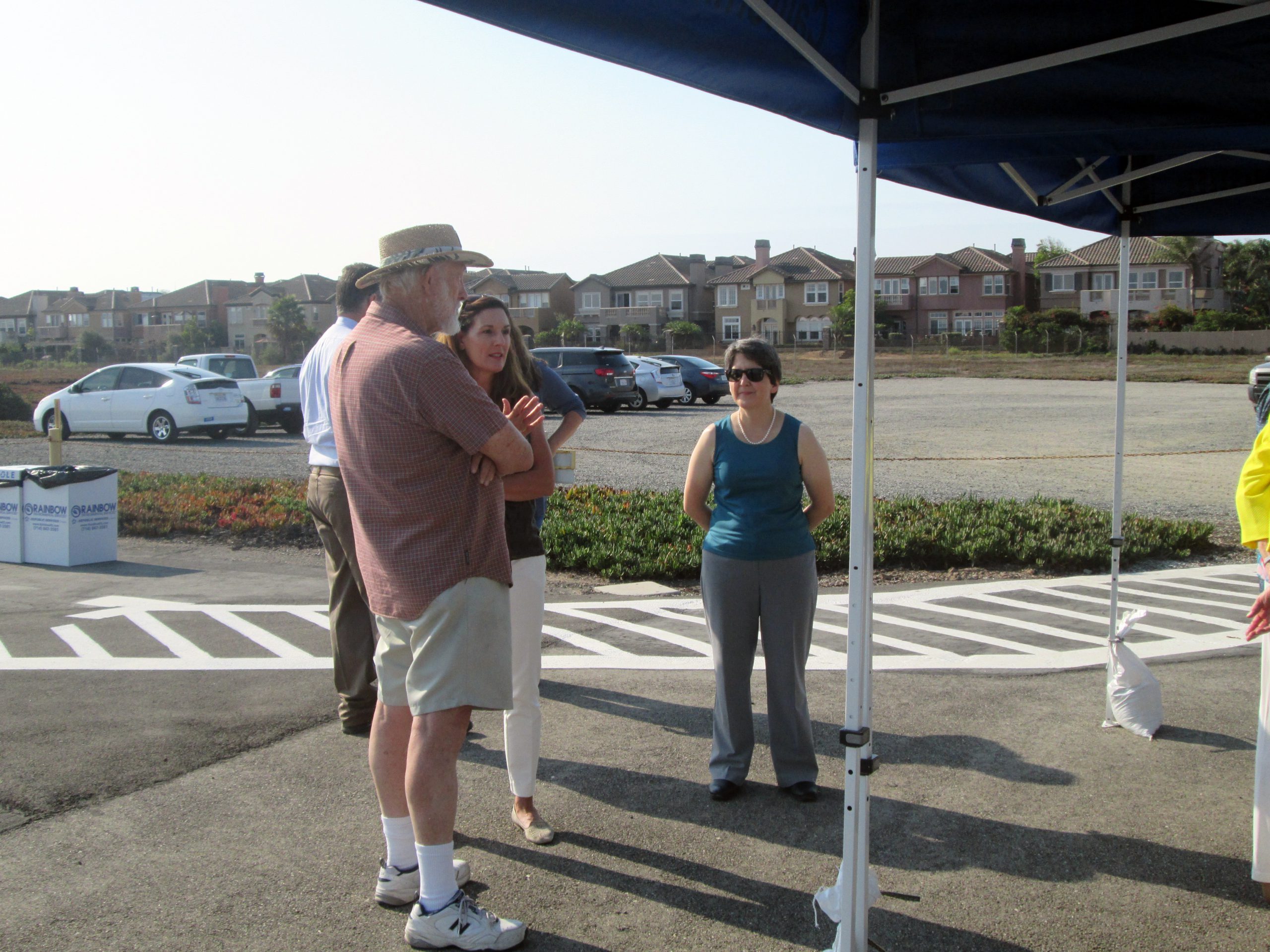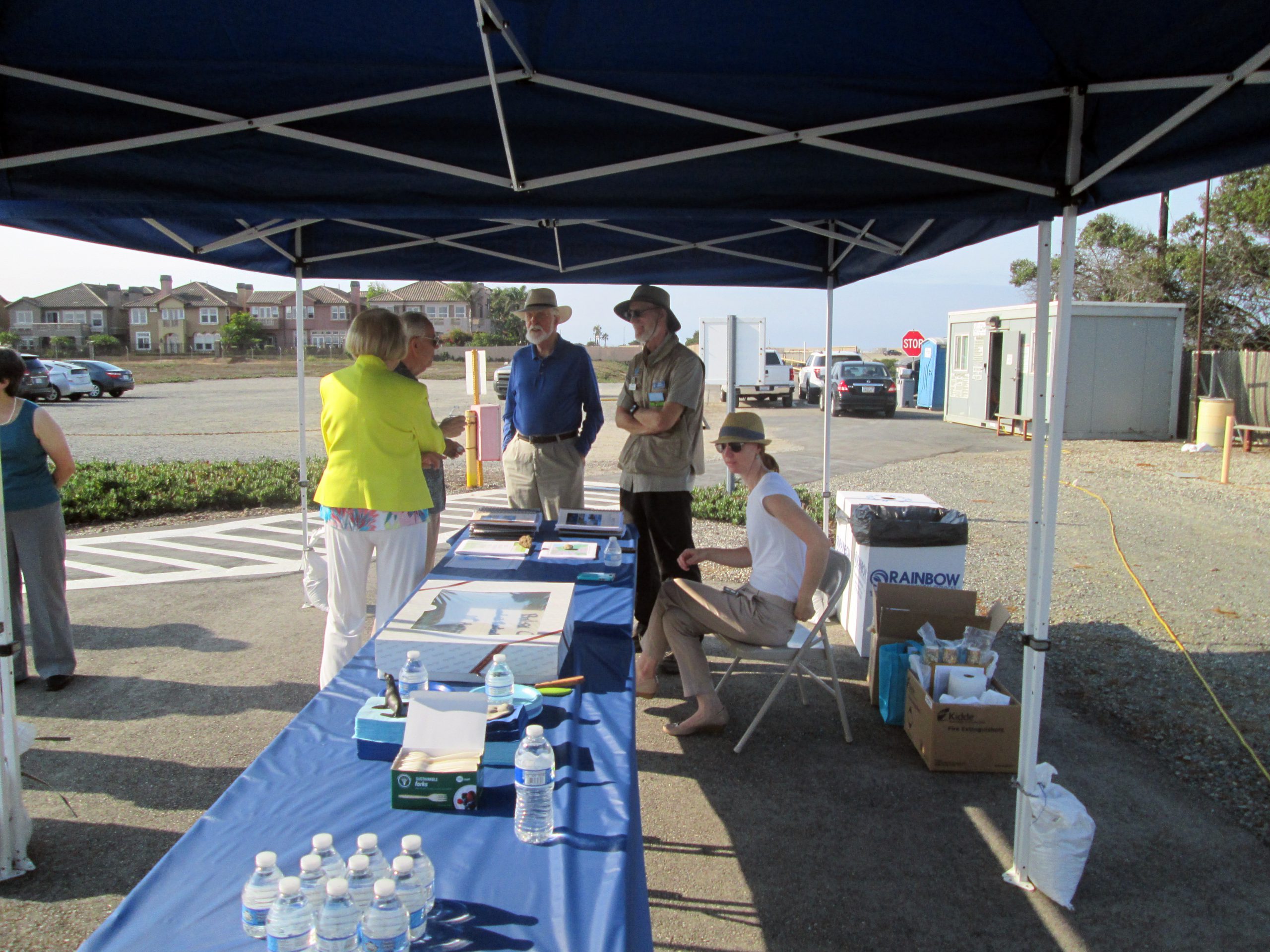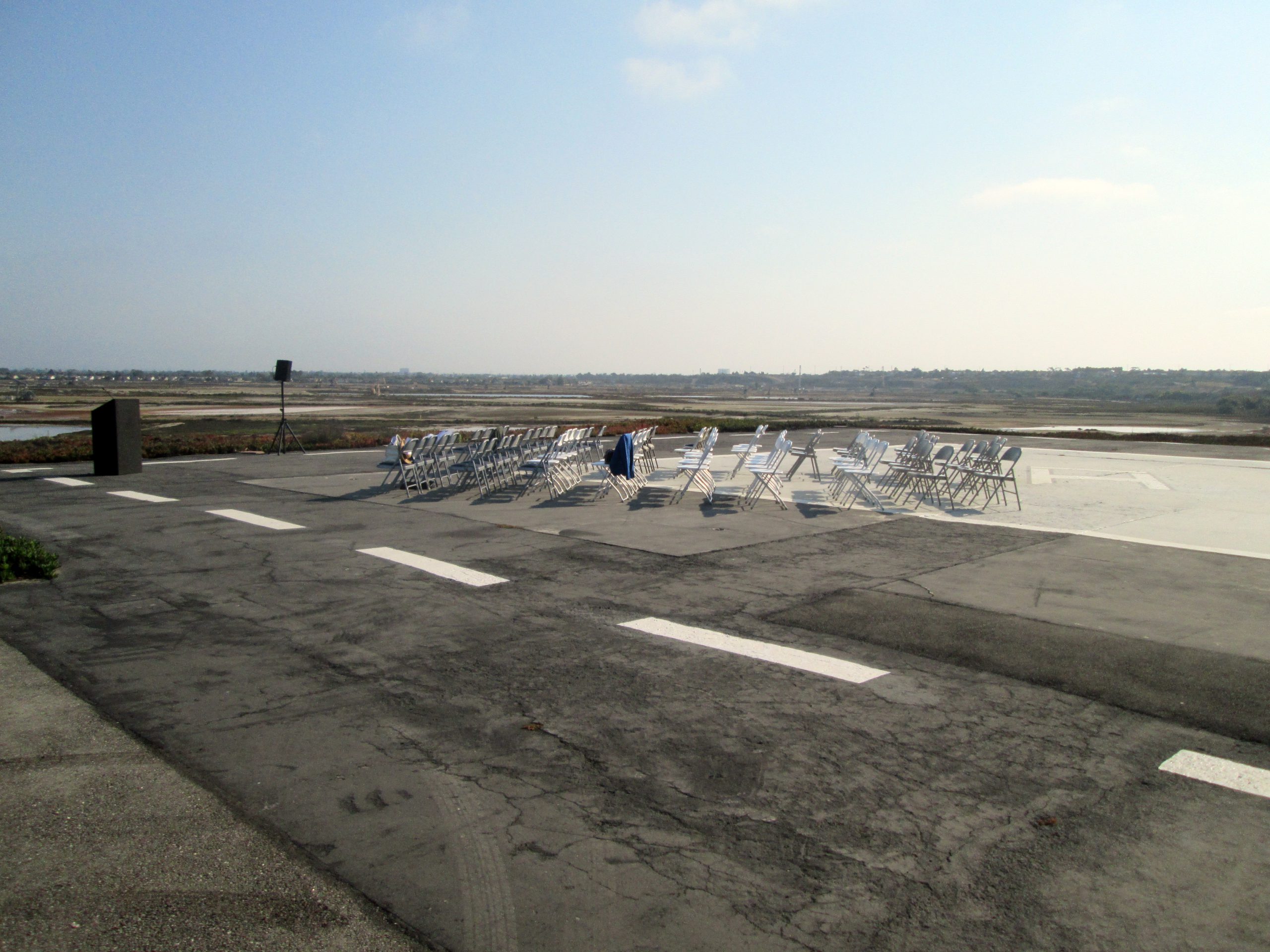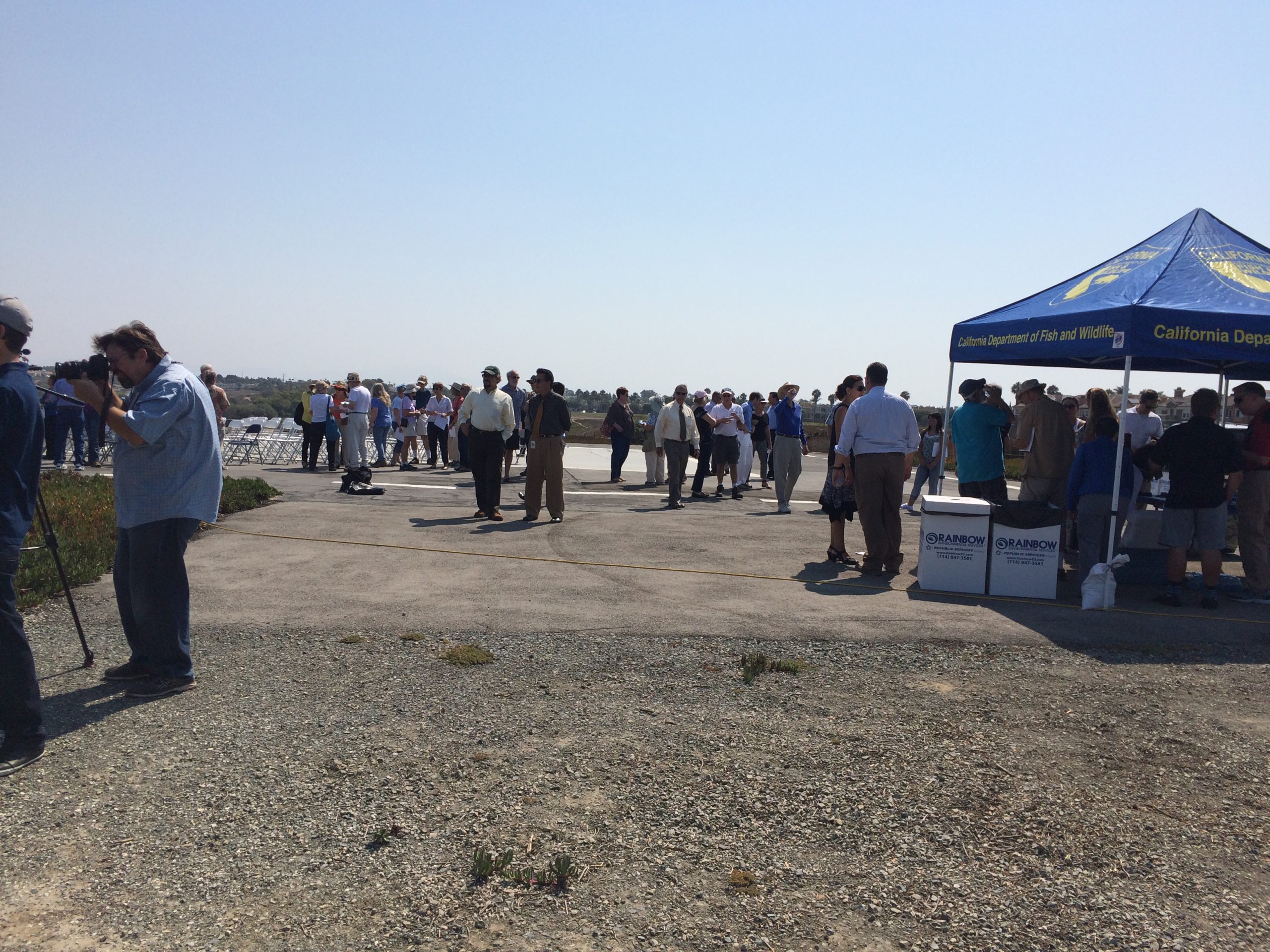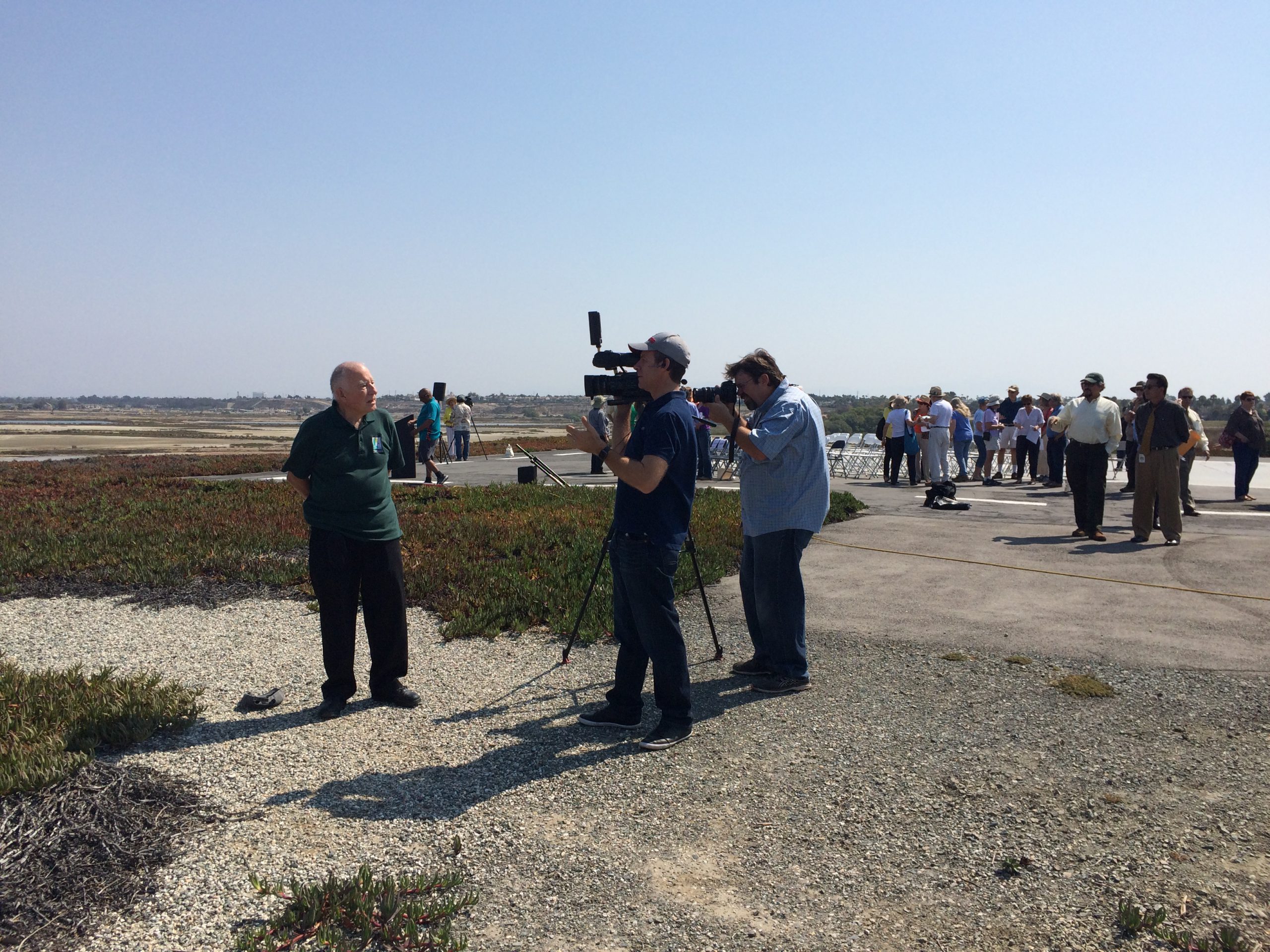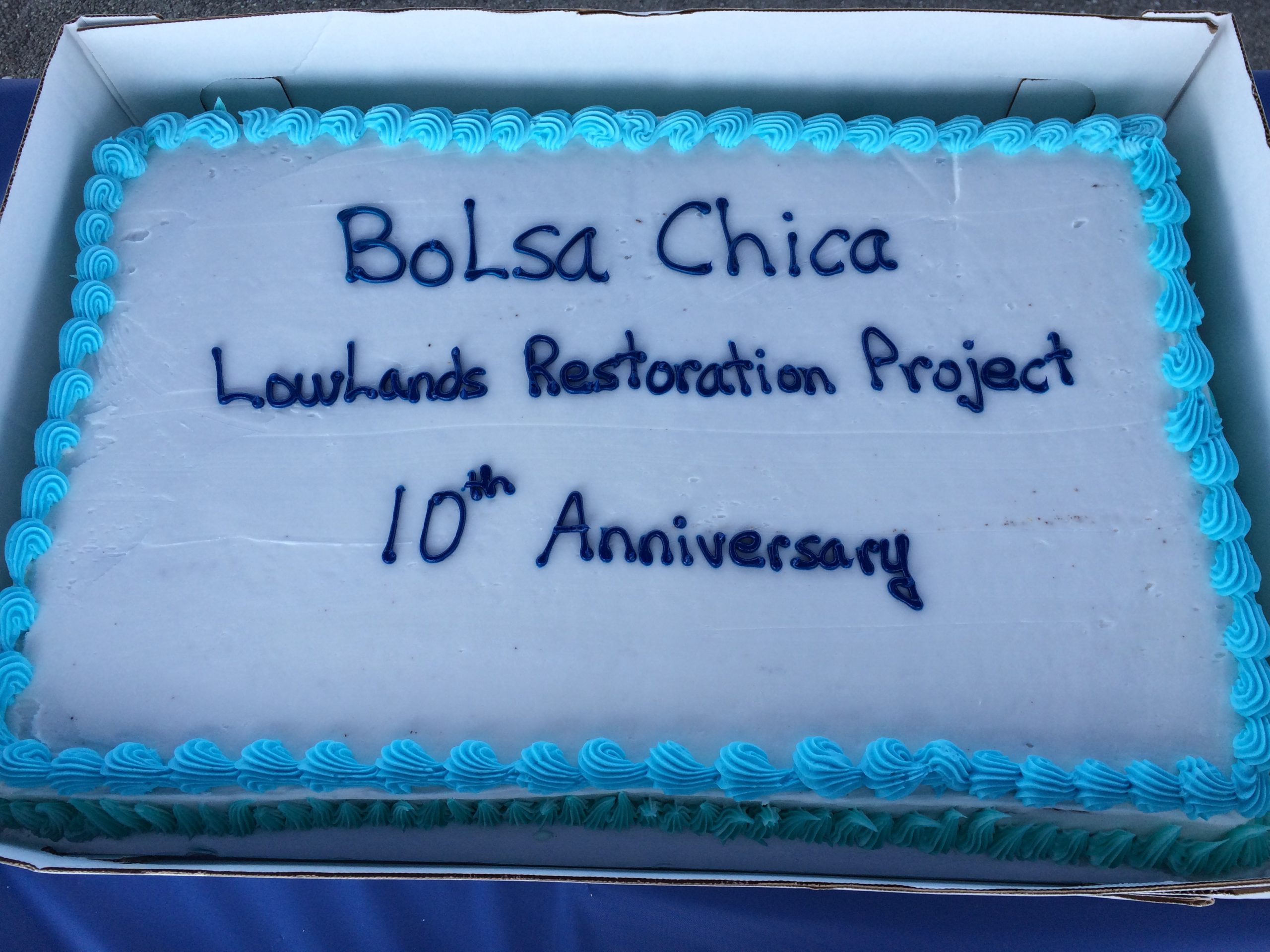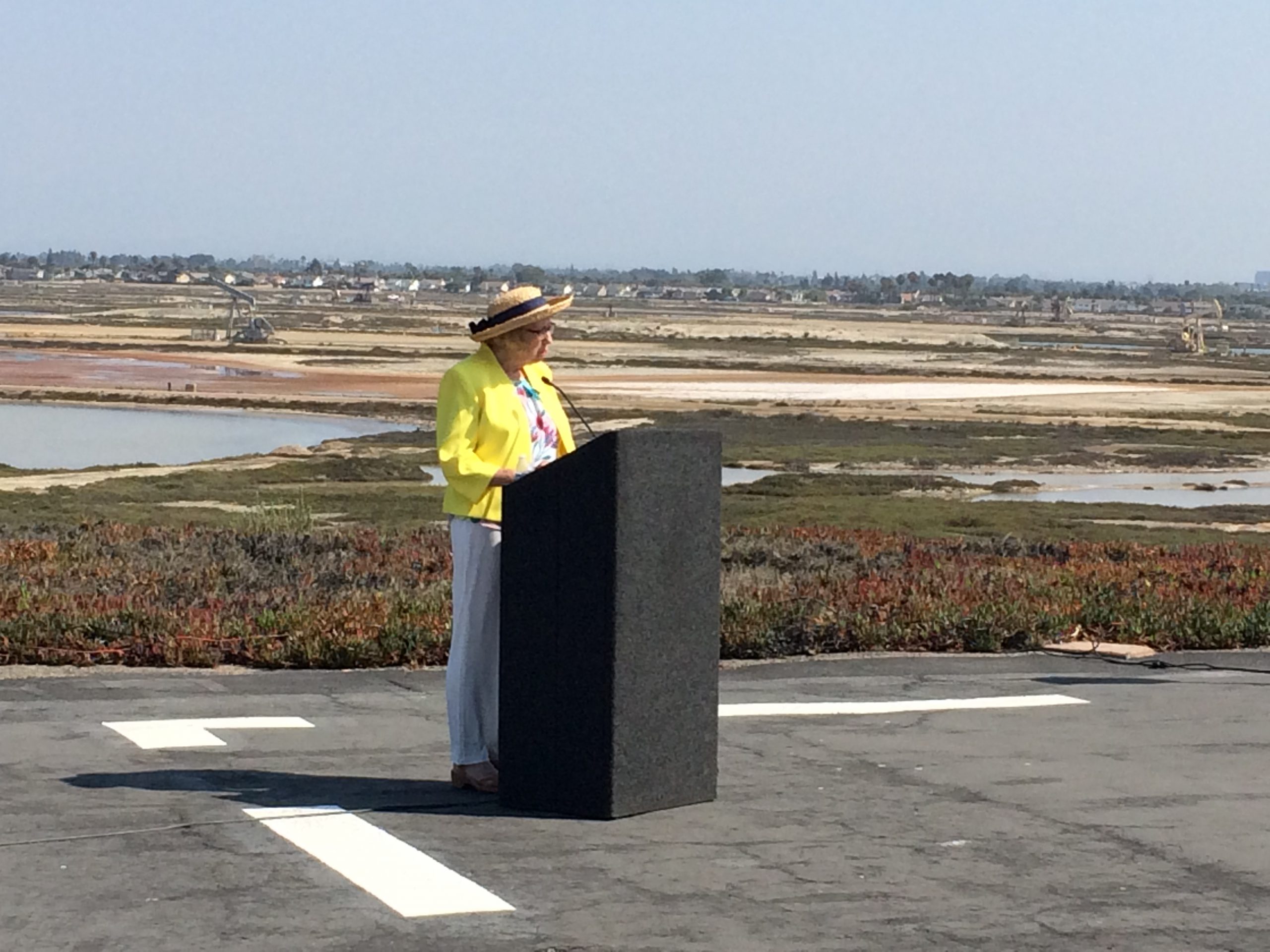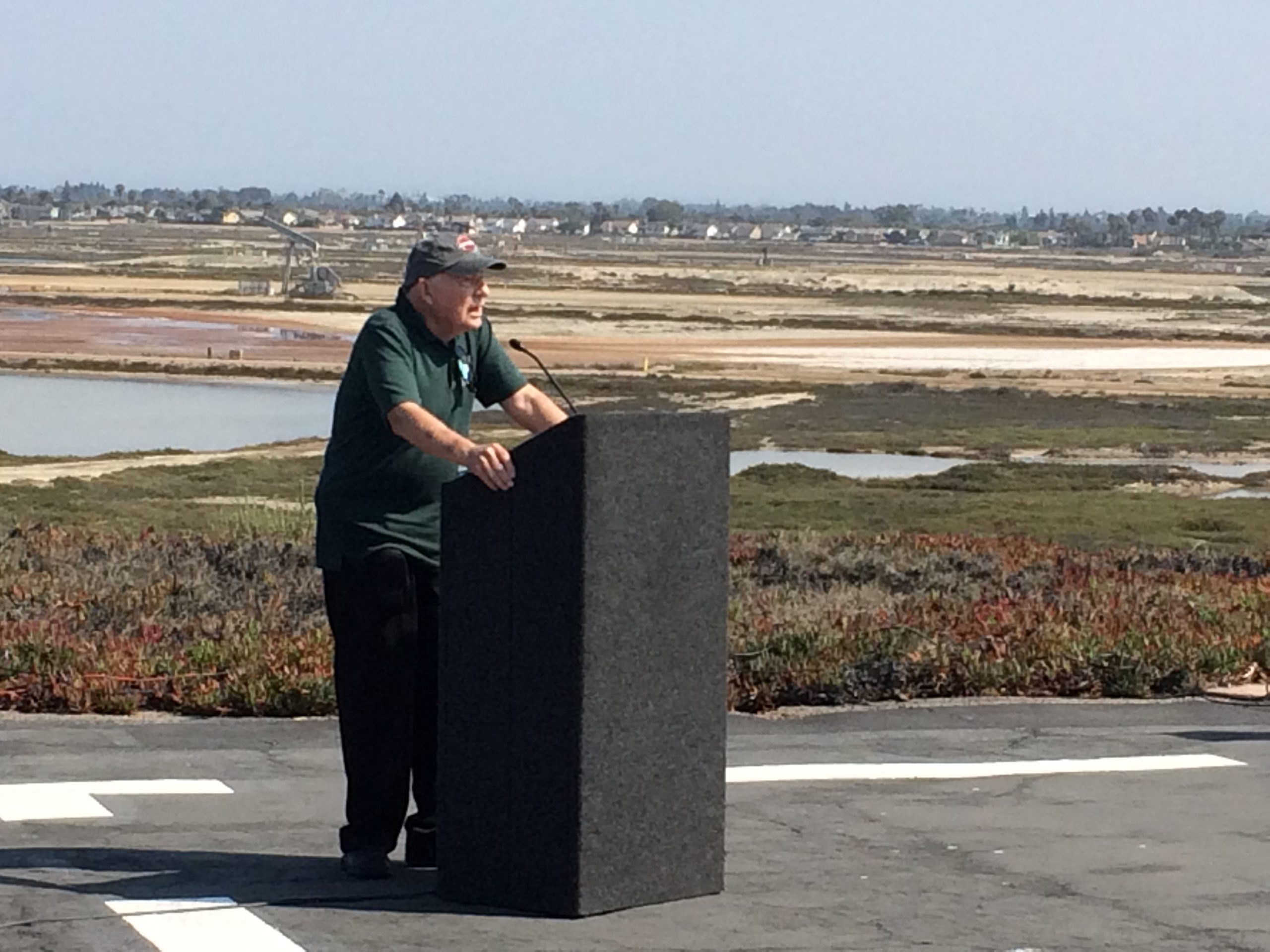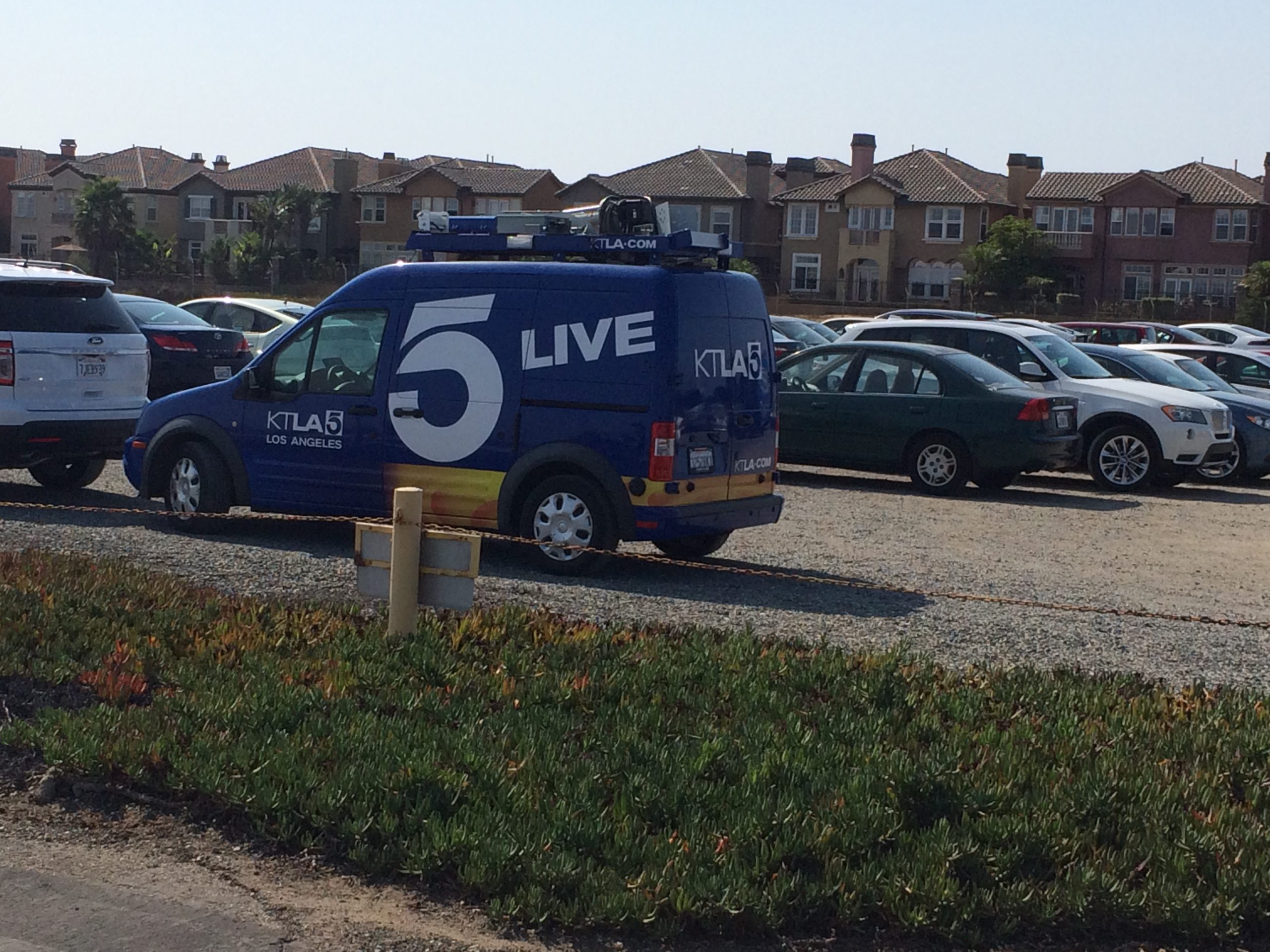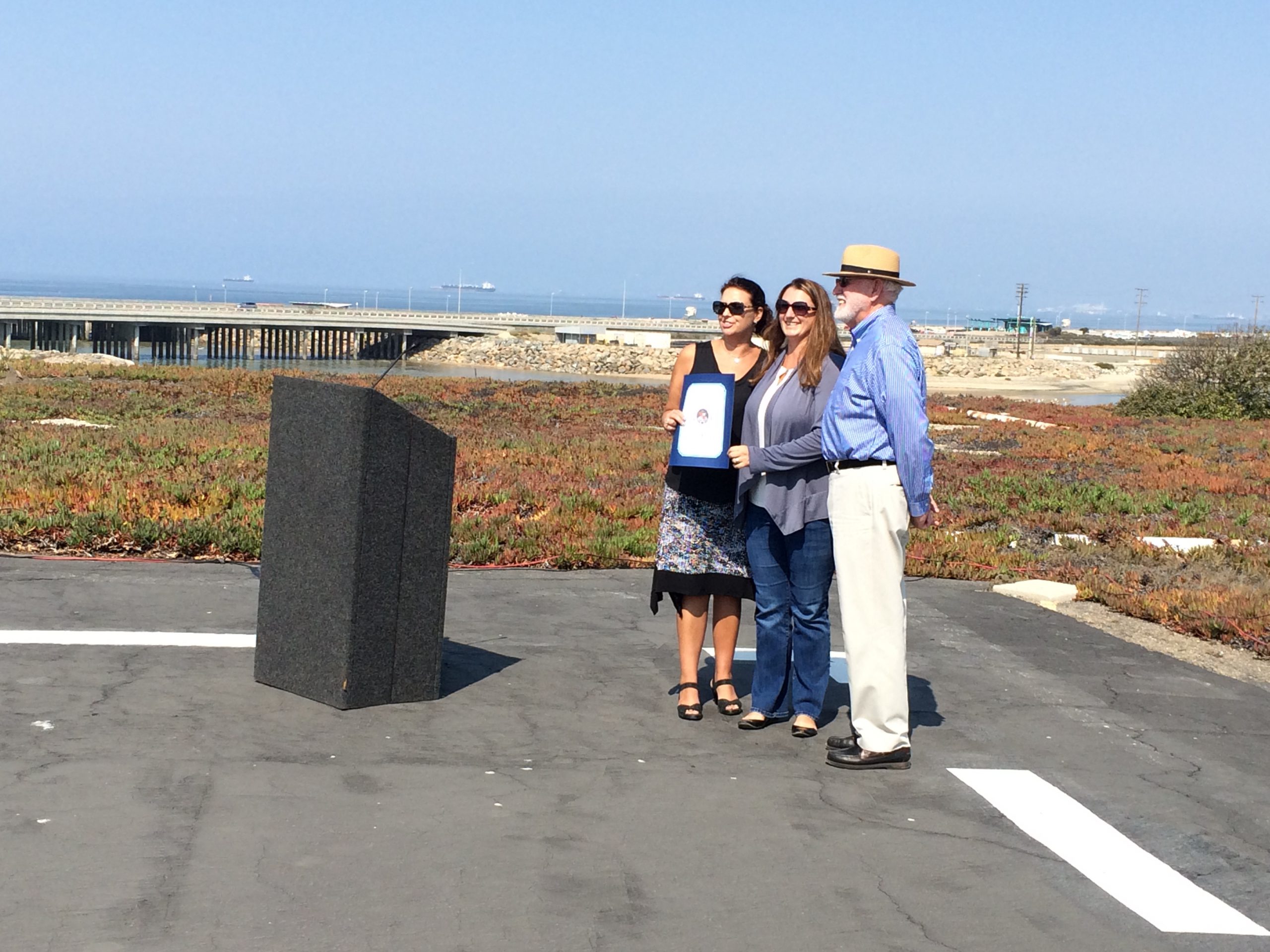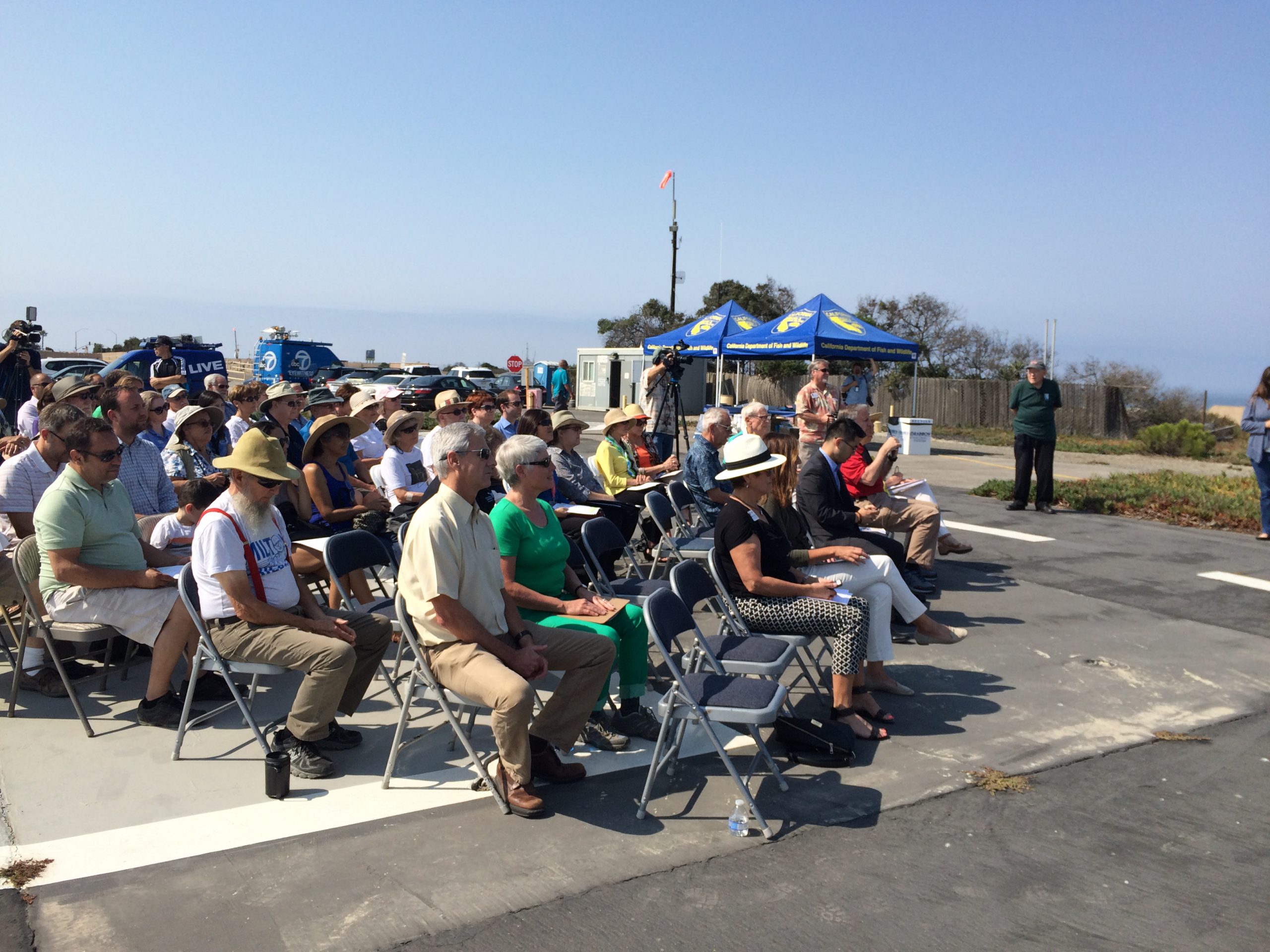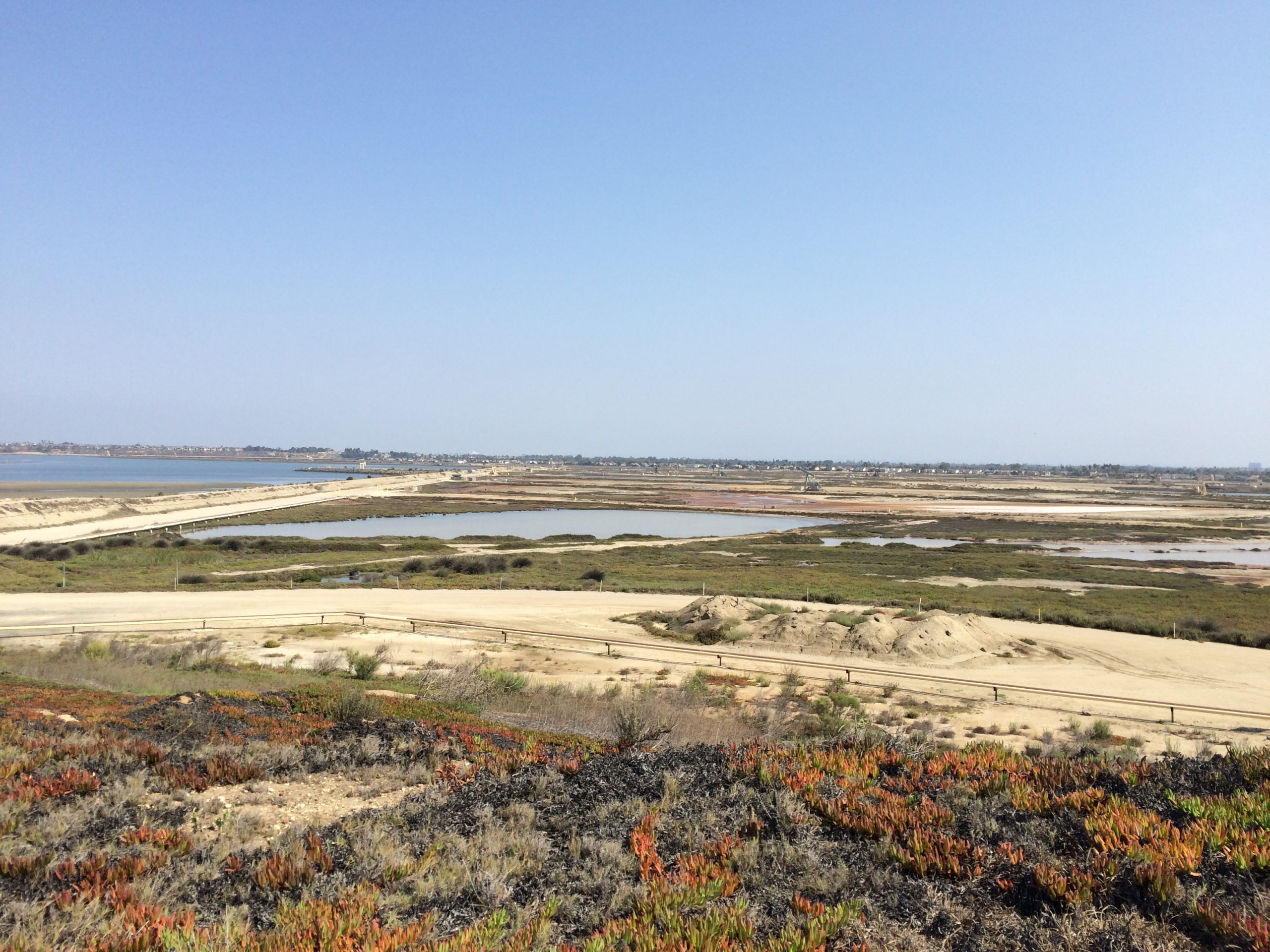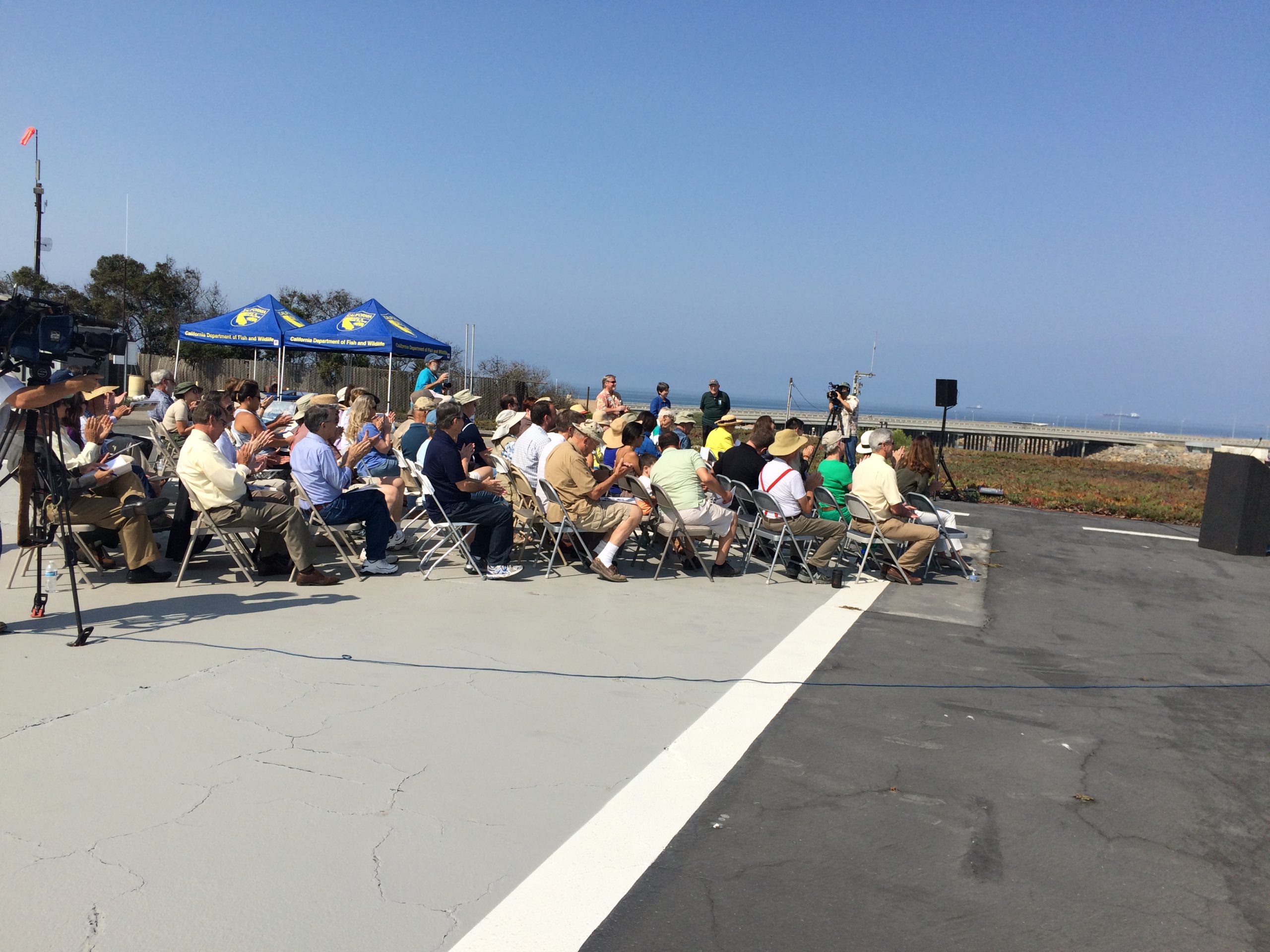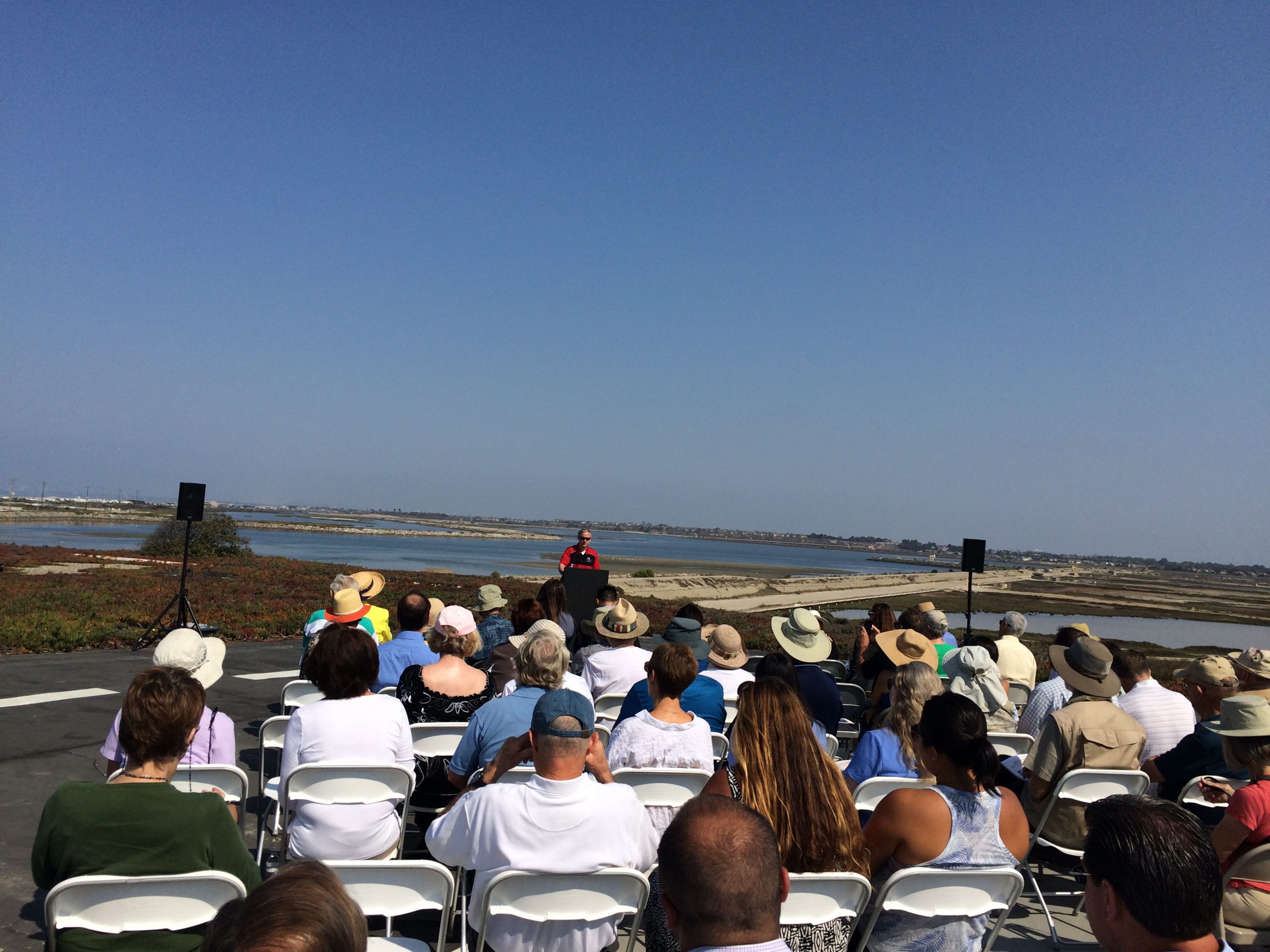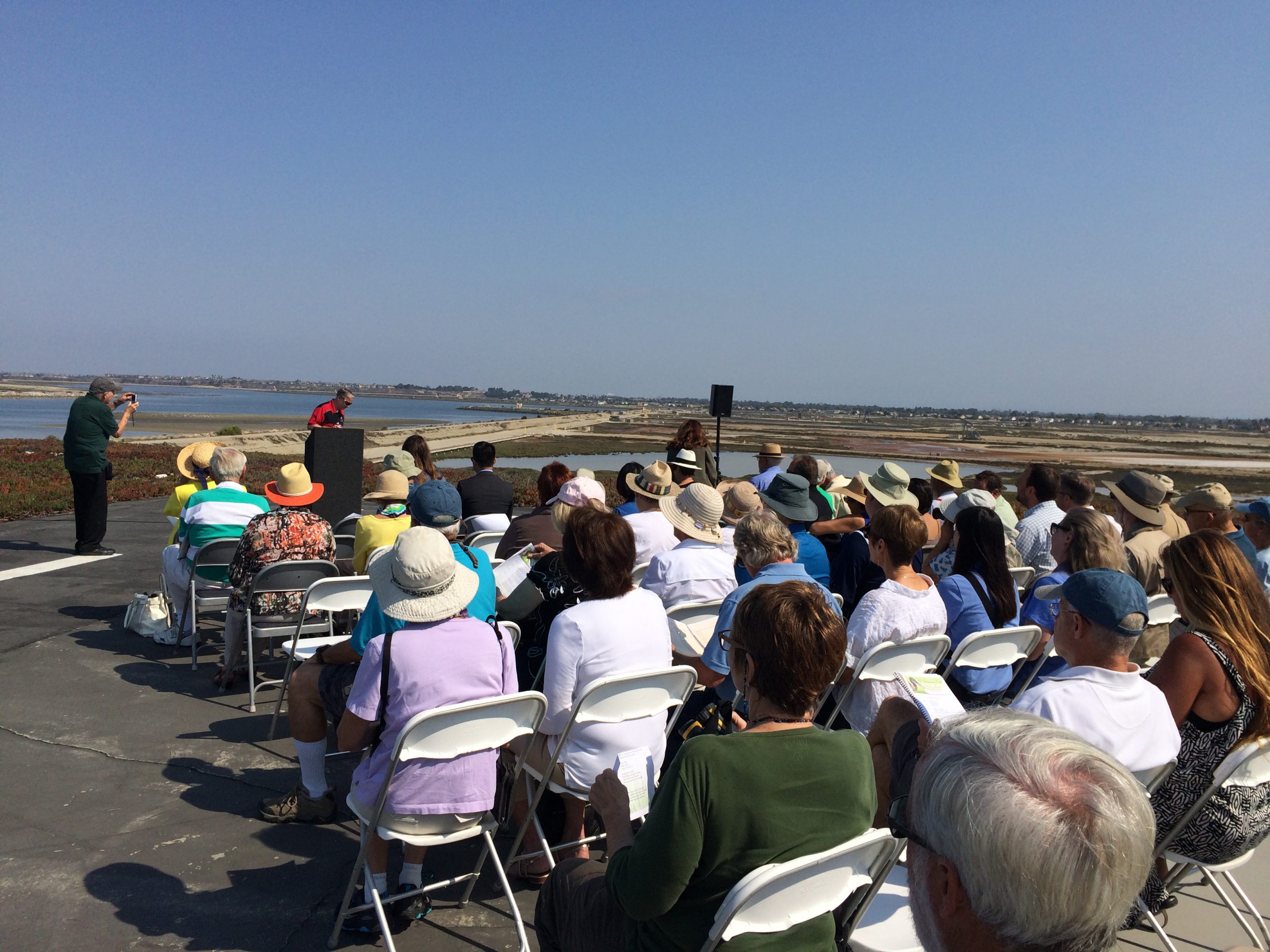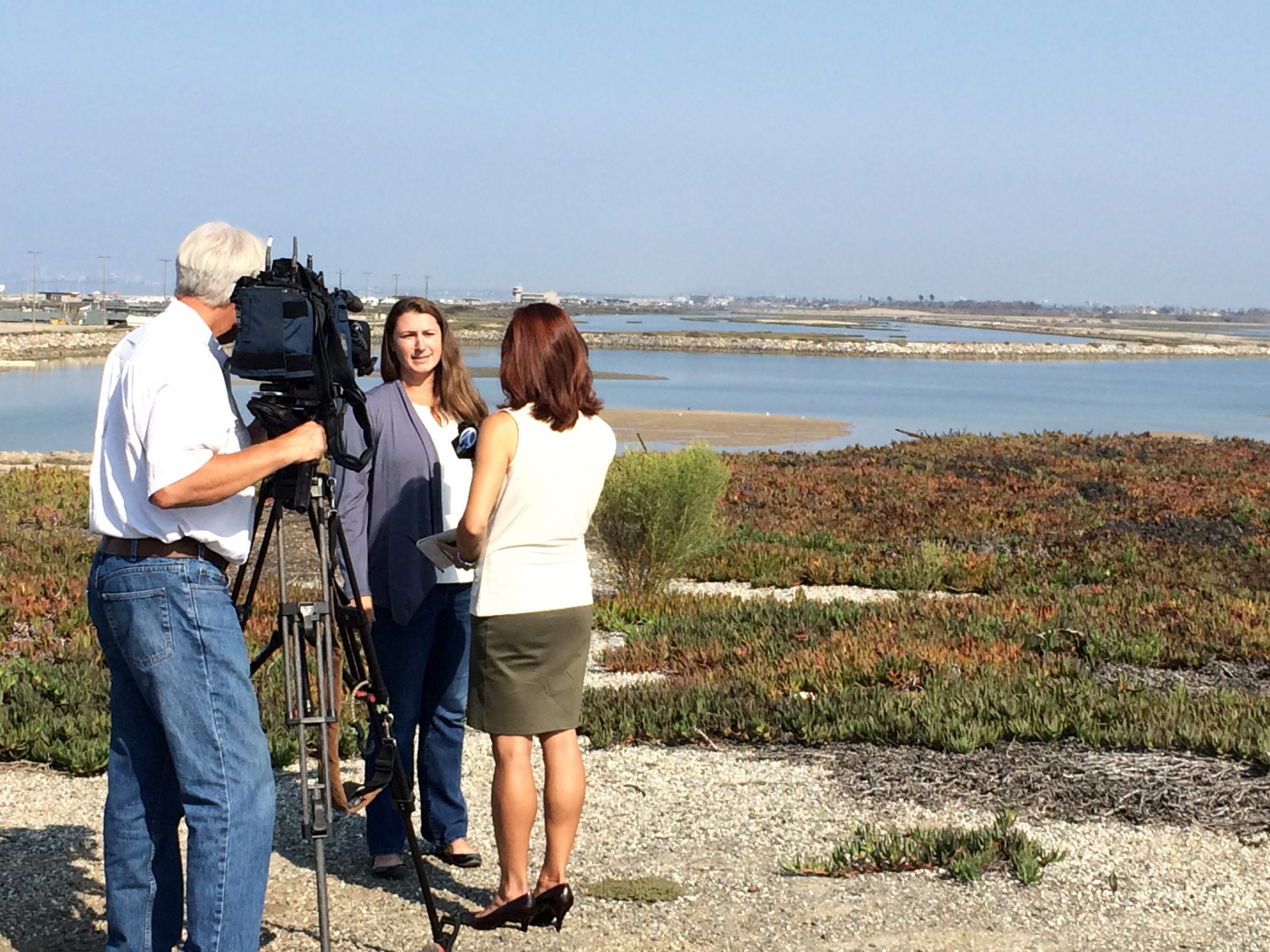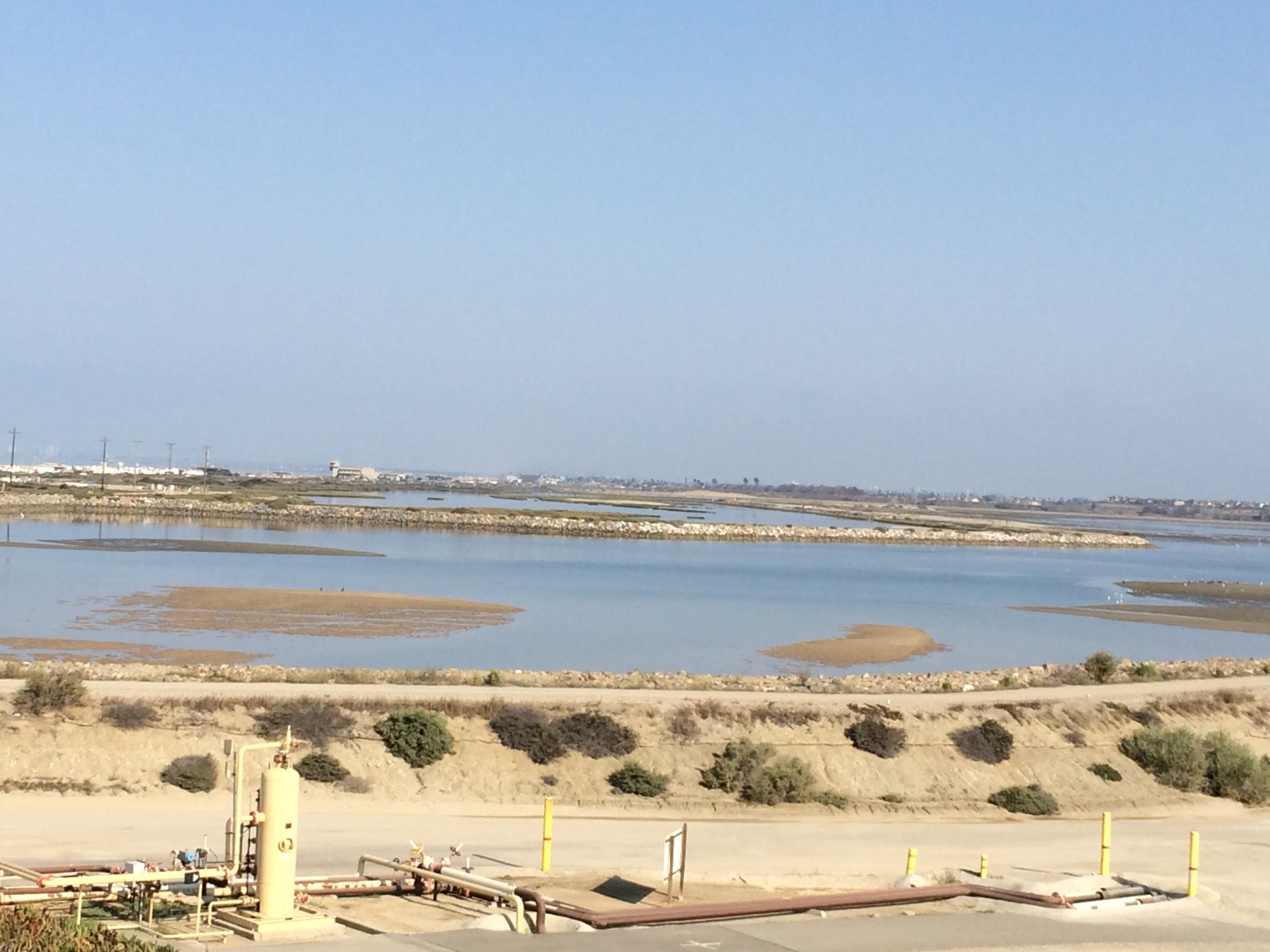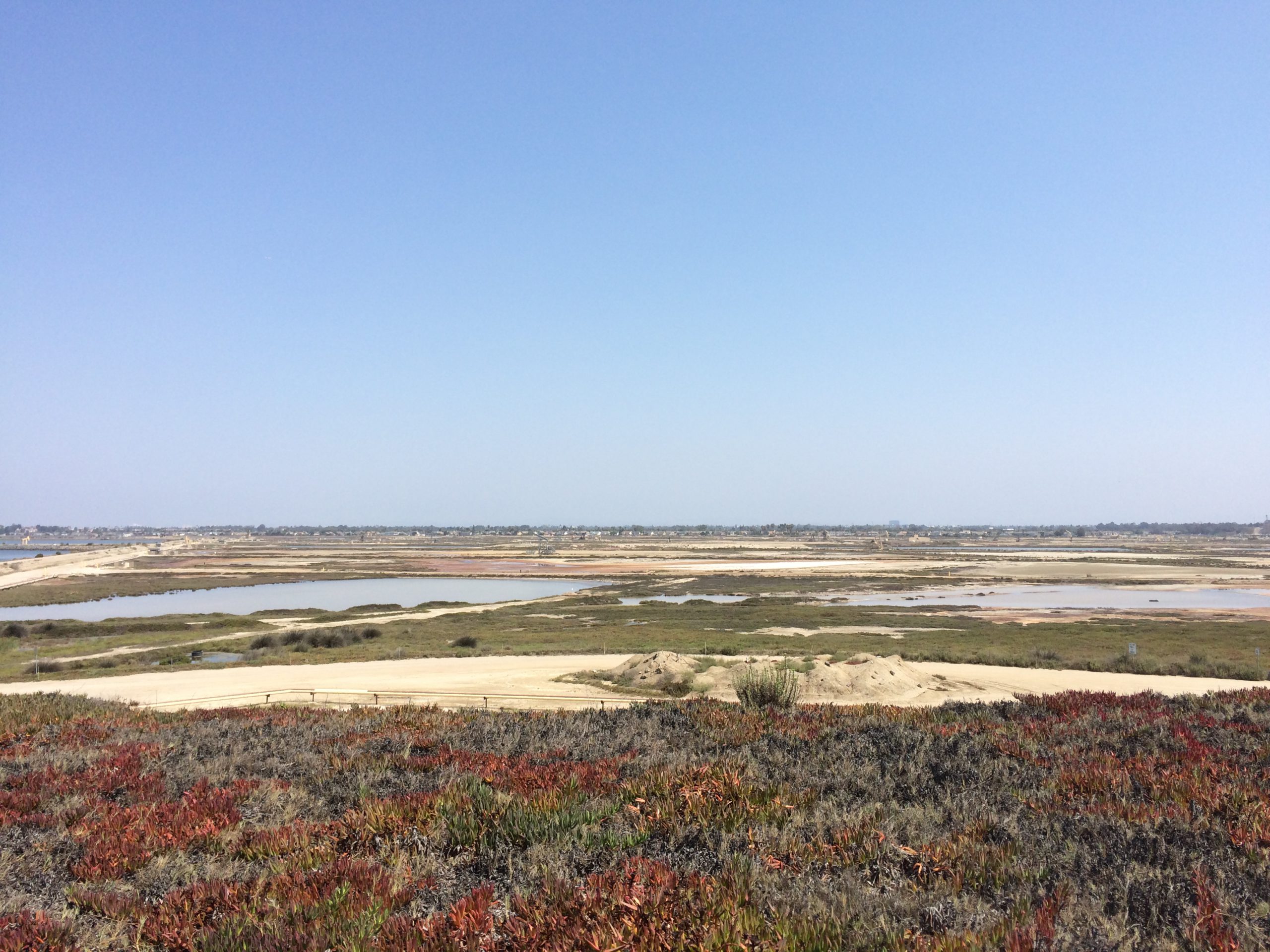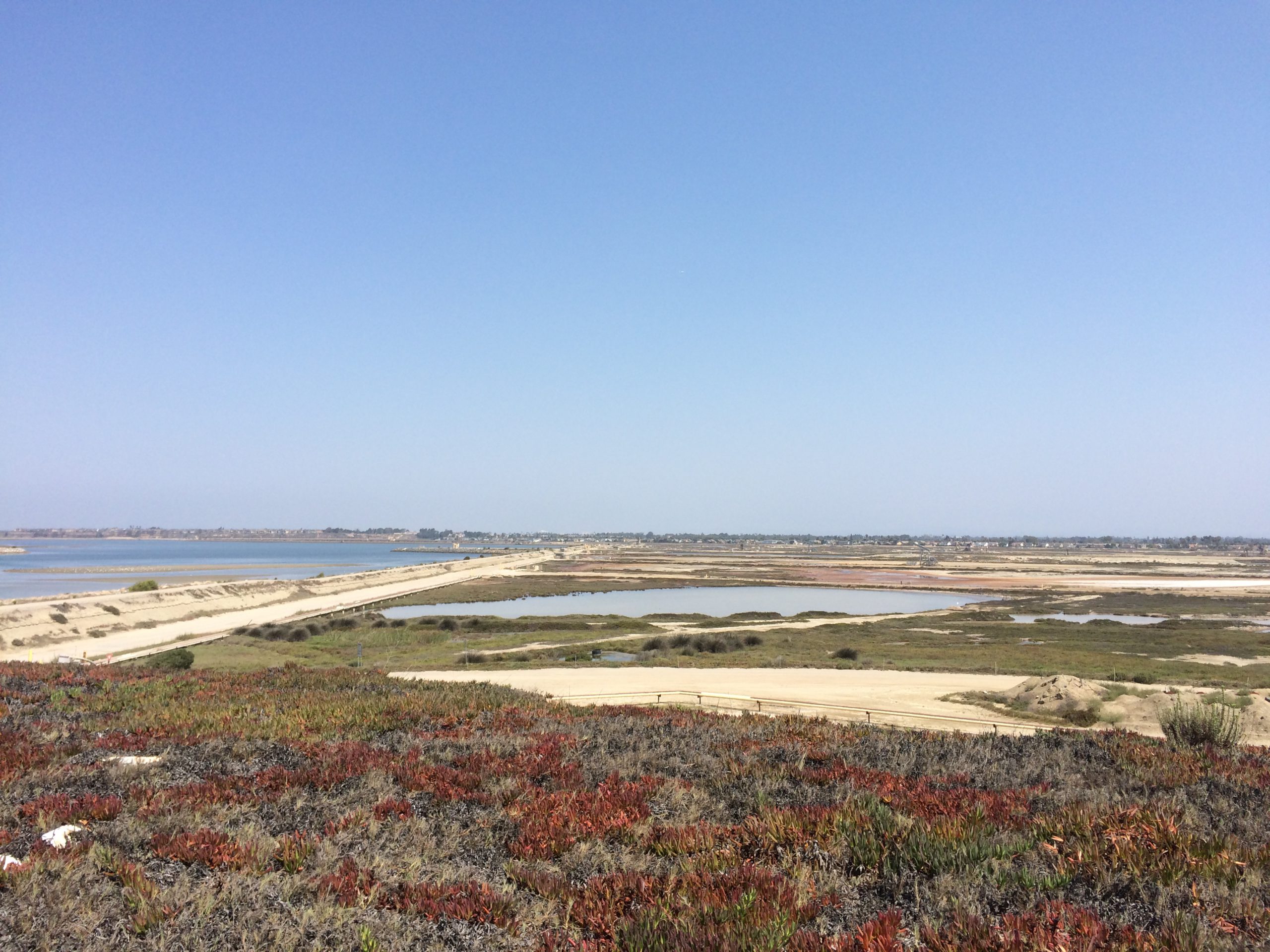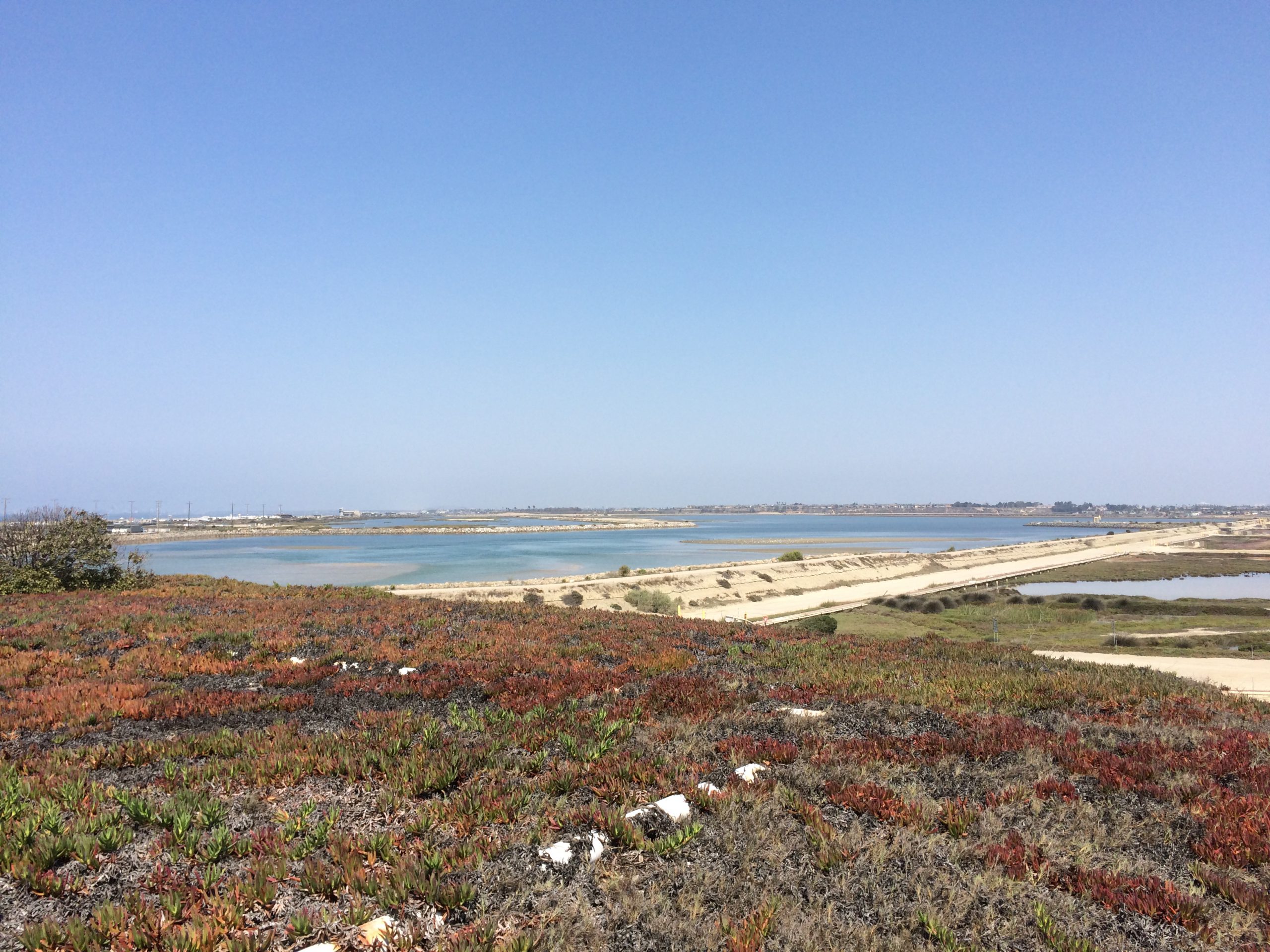
Illustration of the Bolsa Chica Lowlands. View larger Image.
Contact
Wendy Hall
Special Projects Liaison
916.574.0994
Bolsa.Chica@slc.ca.gov
The Bolsa Chica Lowlands Restoration Project created or rehabilitated nearly 600 acres of marine and wetland habitat in Orange County, CA, restoring part of what had historically been a vast estuarine ecosystem. The project, the result of decades of planning and cooperation by the public and government agencies, is the largest wetland restoration in Southern California history. The design included mandatory maintenance of an open ocean inlet to ensure the wetland continues to function and to protect the biological benefits gained by the restoration investment.
Restoration culminated in 2006 when the new full tidal basin to the ocean opened. Post-restoration monitoring has shown that this basin has meaningfully increased the availability of bay habitat, improving southern California fishery resources. Nearly every fish species captured during the biological monitoring program was represented by juvenile size classes (and usually adults as well), demonstrating the role of the basin as nursery habitat for spawning or post-larval settlement and rearing. Commercially important species such as California halibut and white seabass are common in the Basin. The type and size of fish captured also reflect the extensive eelgrass meadows that now thrive there. These eelgrass meadows support resident fish species, provide egg-laying substrate, and protection for breeding species.
Bolsa Chica is a critical stop for migrating shorebirds on the Pacific Flyway. With the introduction of tidal influence, the mudflats created by the restoration provide a rich invertebrate community that is a food source to these birds. Over 10,000 shorebirds have been observed on the restored mudflats during a single survey. The project also created three nesting sites for the threatened western snowy plover and endangered California least tern. These sites are intensively maintained and monitored and provide critical additional habitat for these species.
Nearly all of the biological benefits of the restoration are a result of introducing daily tidal influence from the ocean. As with most human-made wetlands, the inlet requires maintenance to ensure connectivity with the ocean. Sand that naturally flows down the coastline is continually pulled into the Basin by the waves and tide. Without regularly removing sand from the inlet, the Basin would become closed off from the ocean, causing degradation of water quality death of the biota in the basin, damage to intertidal plant communities, and loss of an important food source for nesting birds. It is critical that the tremendous investment of time and money, and resulting biological successes, be protected by continuing inlet maintenance, water control, and adaptive management.
The initial $15 million set aside for ongoing maintenance is inadequate to meet the long term needs and Bolsa Chica is facing a critical funding deficiency. This situation is seen regionally, as most major coastal wetland restoration projects in southern California move into the long-term maintenance phase. Continued maintenance is critical to the sustained success of all these restoration projects.
Fast Facts
Who
California State Lands Commission
California Department of Fish and Wildlife
State Coastal Conservancy
California Natural Resources Agency
U.S. Fish and Wildlife Service
U.S. Army Corps of Engineers
National Marine Fisheries Service
U.S. Environmental Protection Agency
What
Over 159 bird species
100 acres of eelgrass beds
Over 52 species of fish
200 acres of salt marsh
Second highest Belding’s Savannah
Sparrow nesting in the State
Successful nesting by snowy plovers, least terns, clapper rails
Why
Bolsa Chica was built as required mitigation for the expansion of the Ports of Long Beach and Los Angeles
Investment
$101.4 million Ports of Long Beach and Los Angeles
$25.6 million Propositions 40 and 50, Coastal Conservancy, Wildlife Conservation Board
$25 million interest
$3 million annual management costs
$4 million approximate remaining funds
10th Anniversary Celebration
Scroll through photos from the celebration below.
- Historic Bolsa Chica Lowlands Restoration Project celebrates 10th anniversary
- Amid 10th Anniversary Celebration at Bolsa Chica Wetlands, Funding Is in Question (KTLA 5)
- Bolsa Chica Basin Inlet celebrates 10th anniversary as budget concerns linger (ABC News)
- Environmental group Amigos de Bolsa Chica celebrates 40th anniversary (Huntington Beach Independent)


